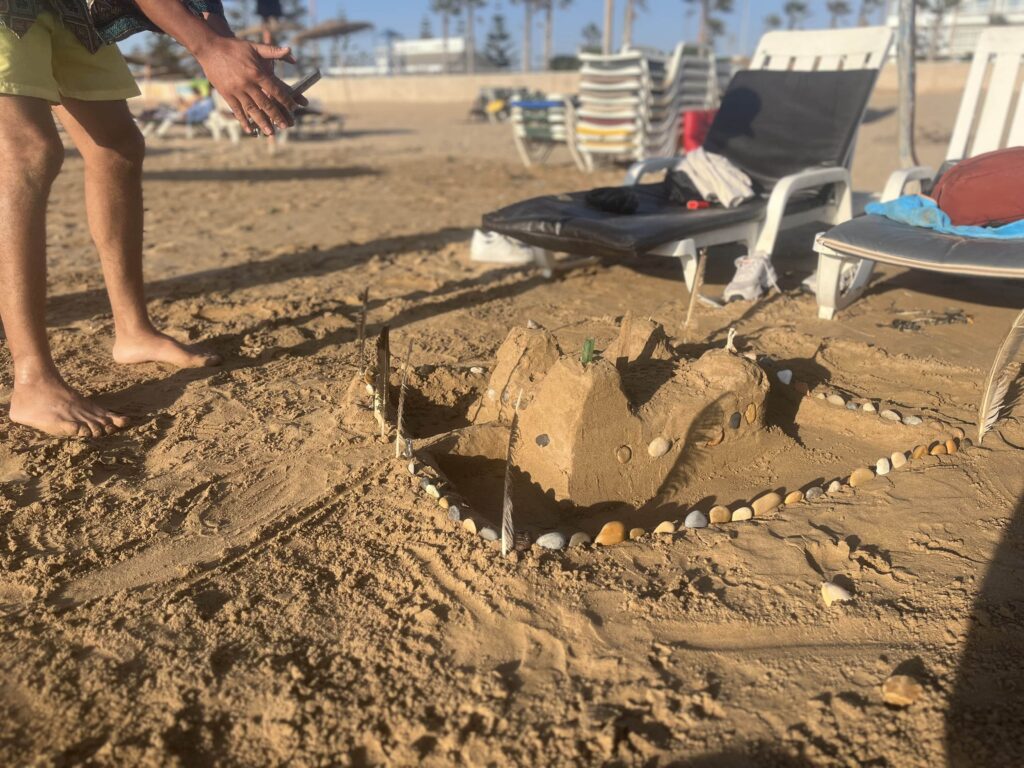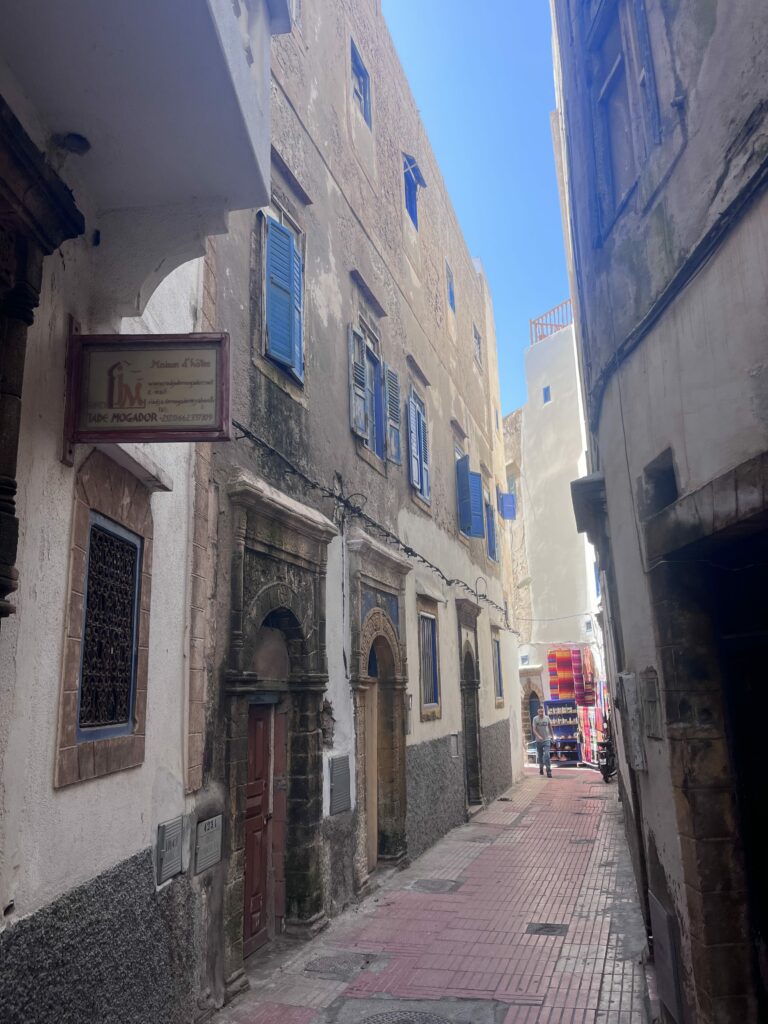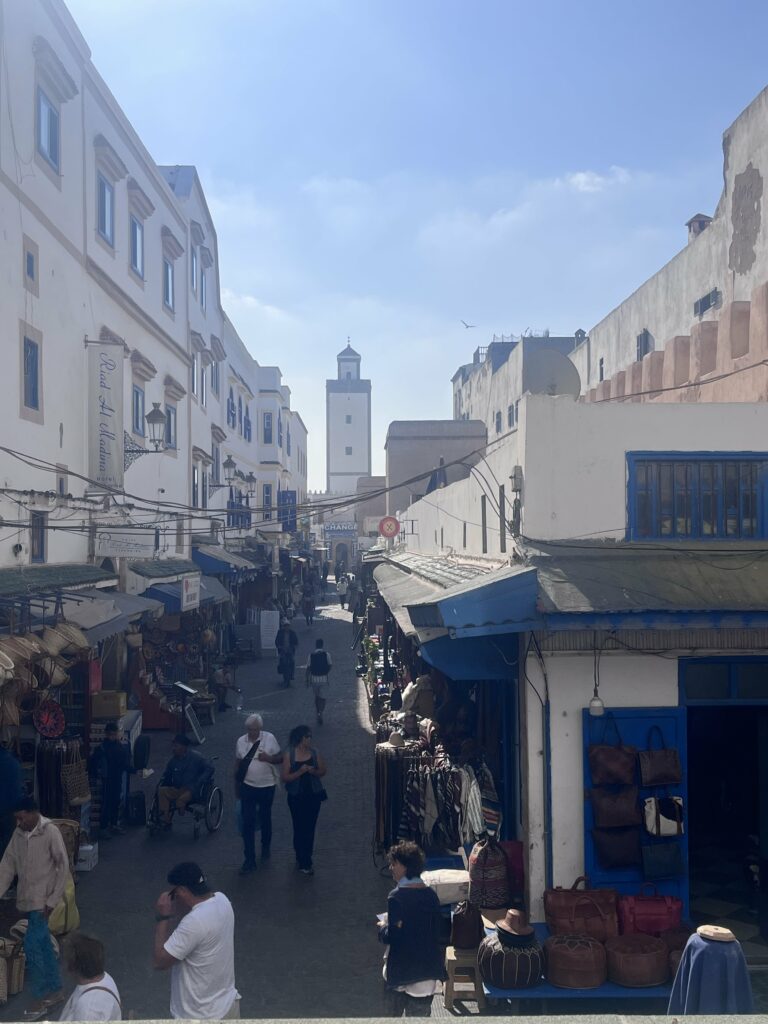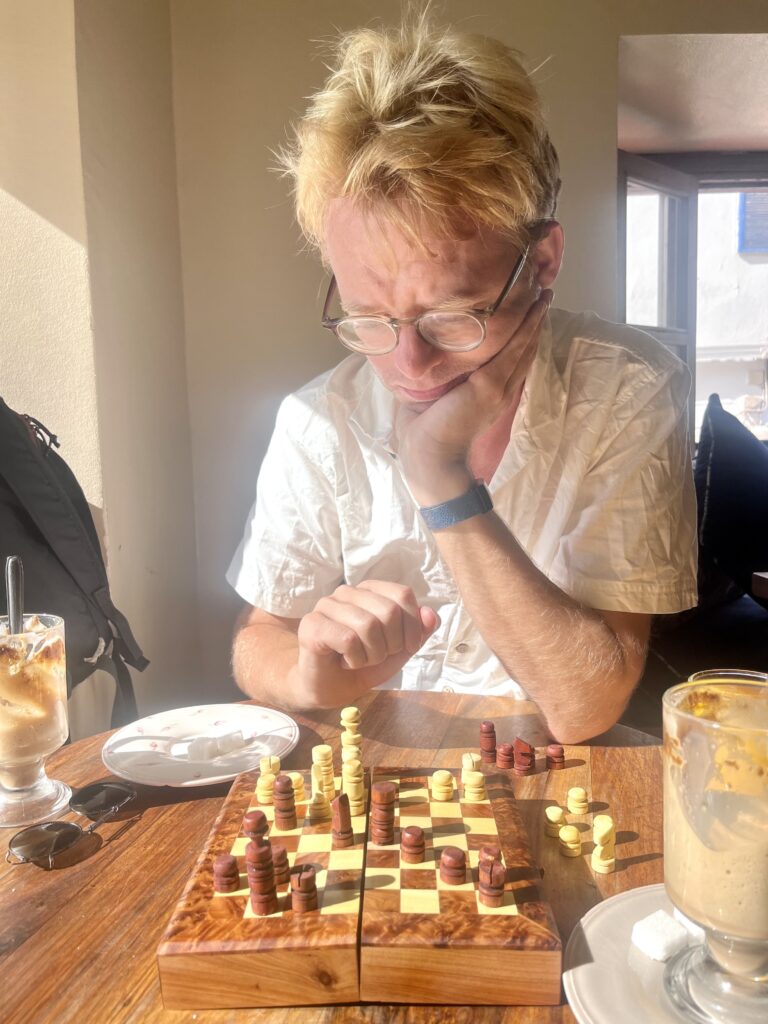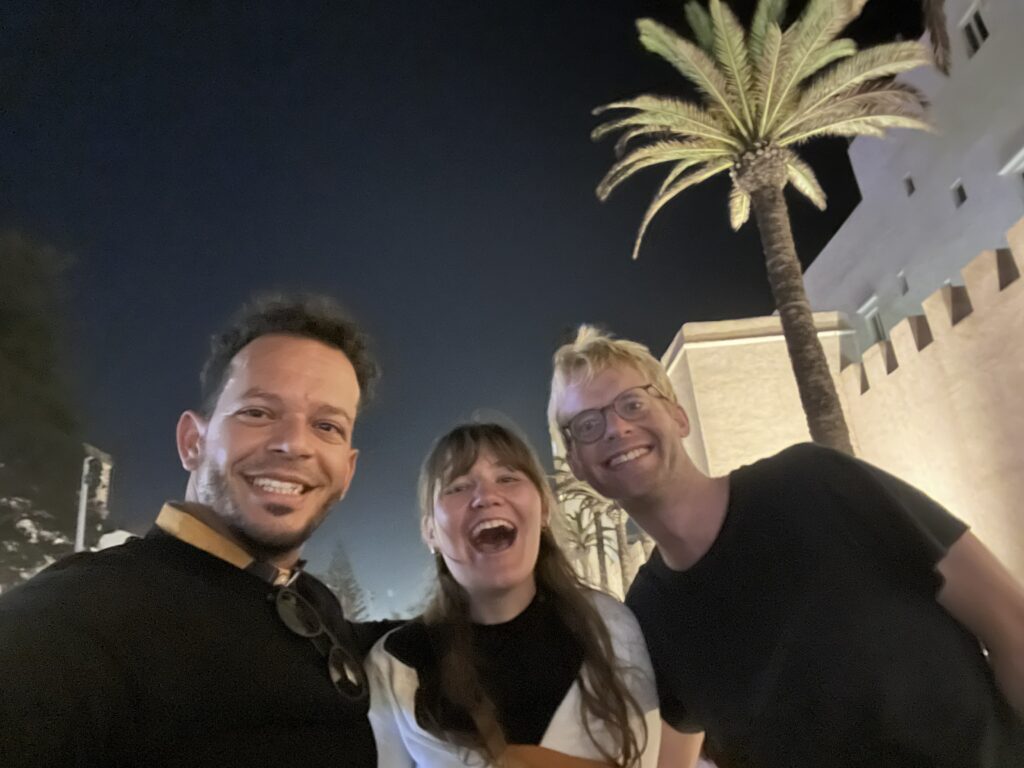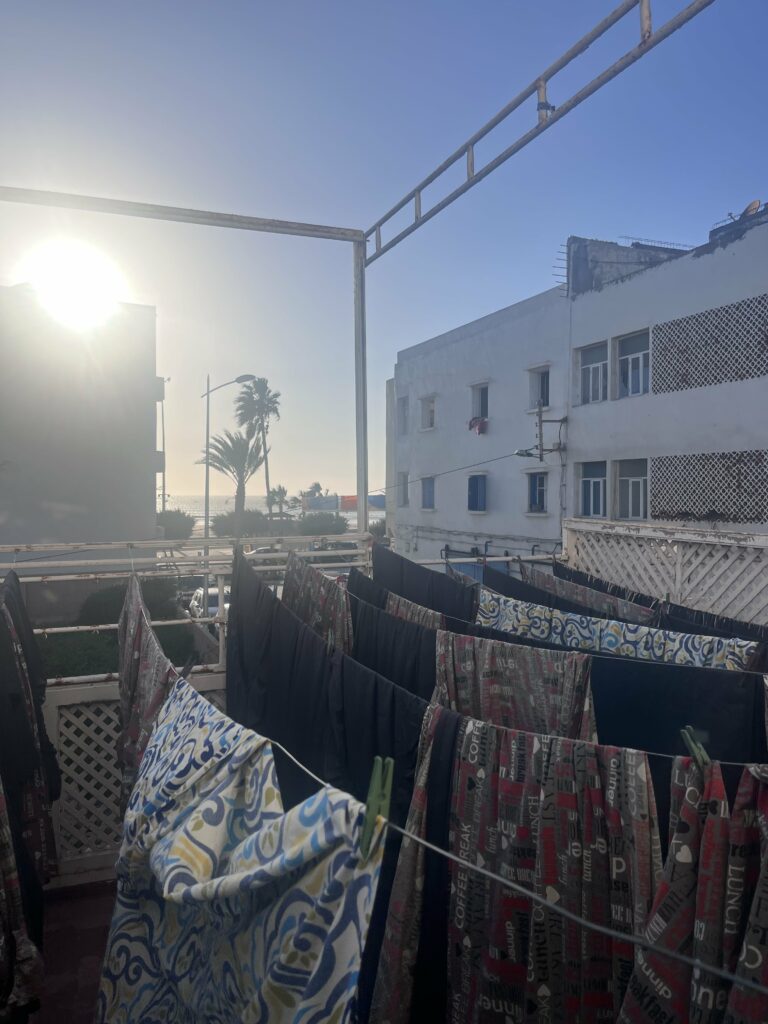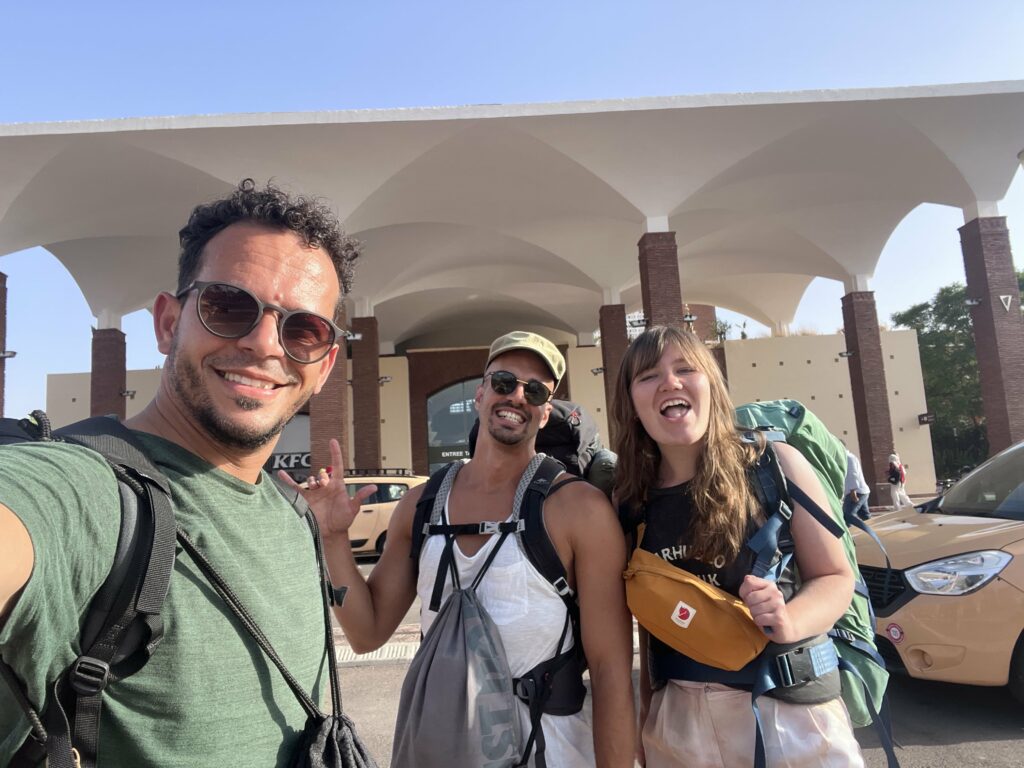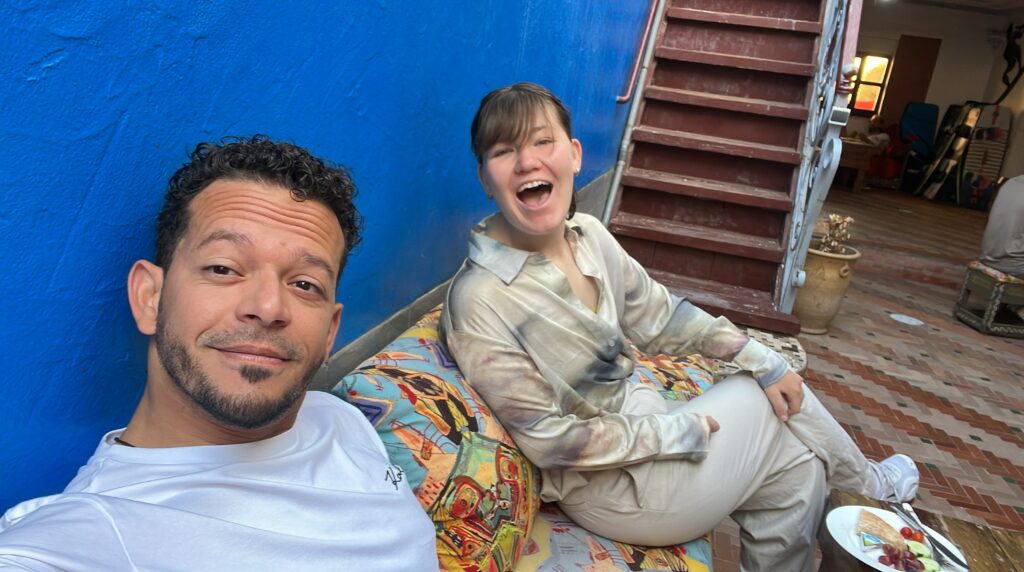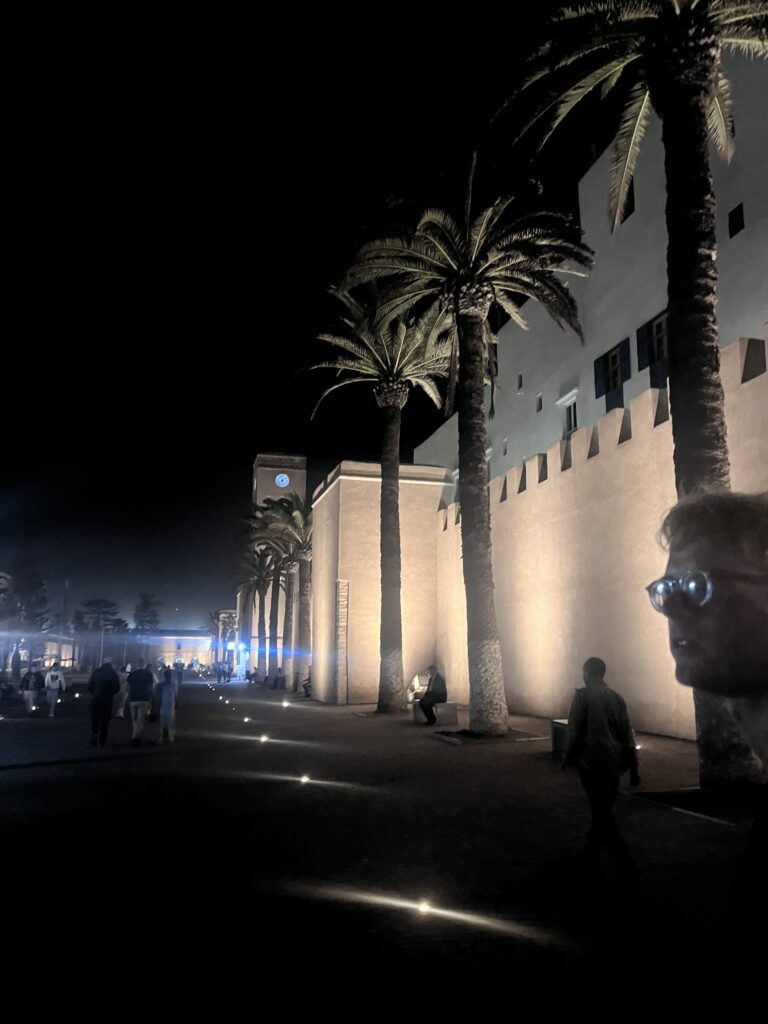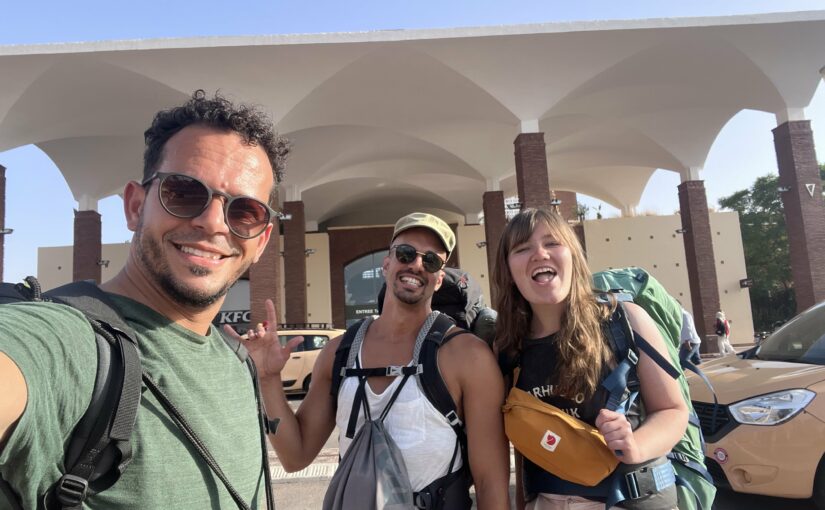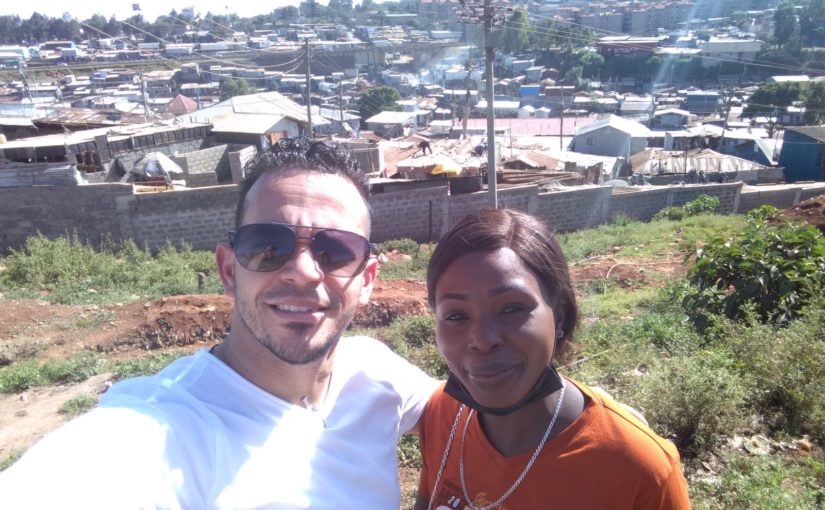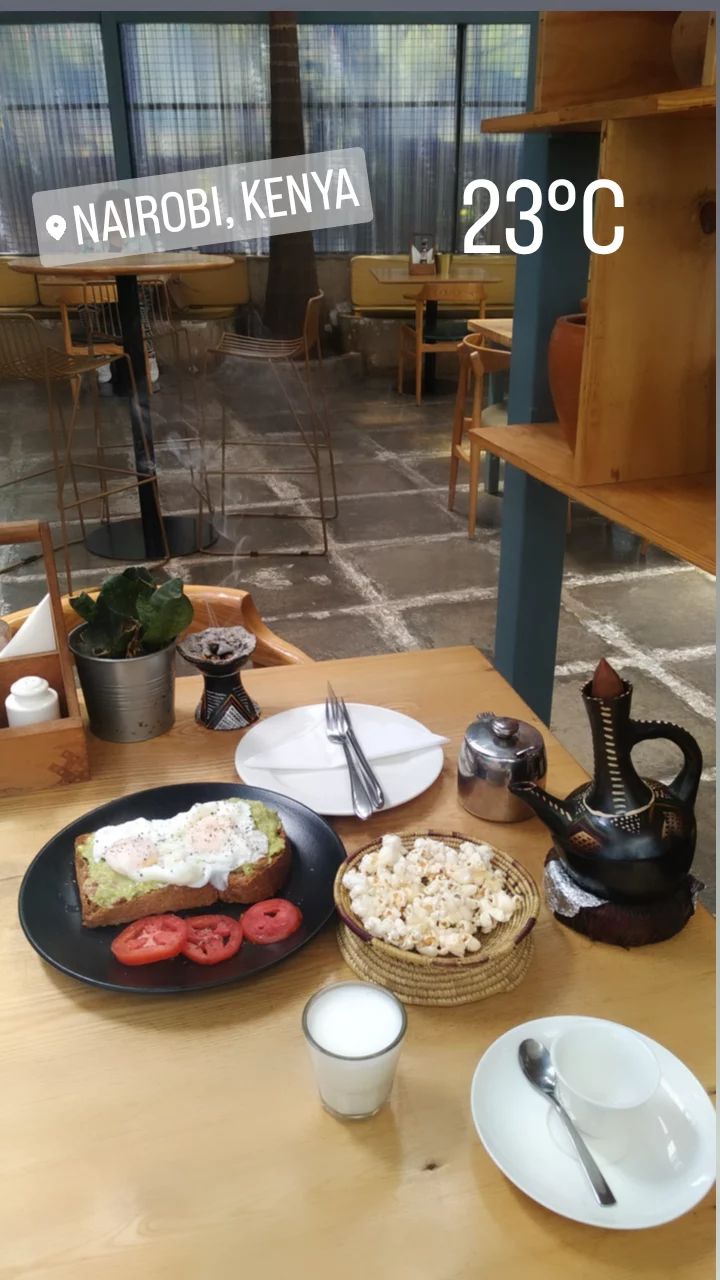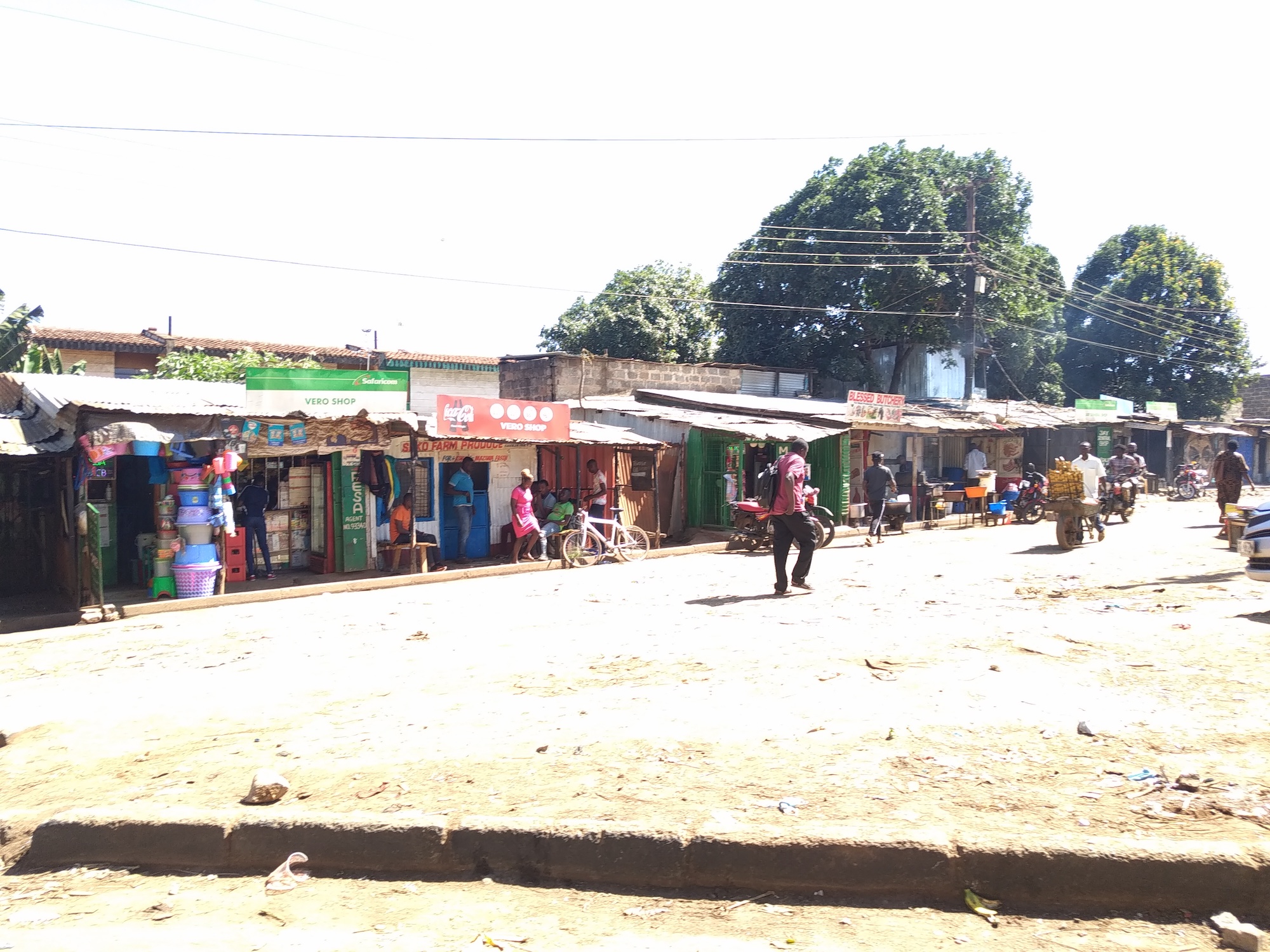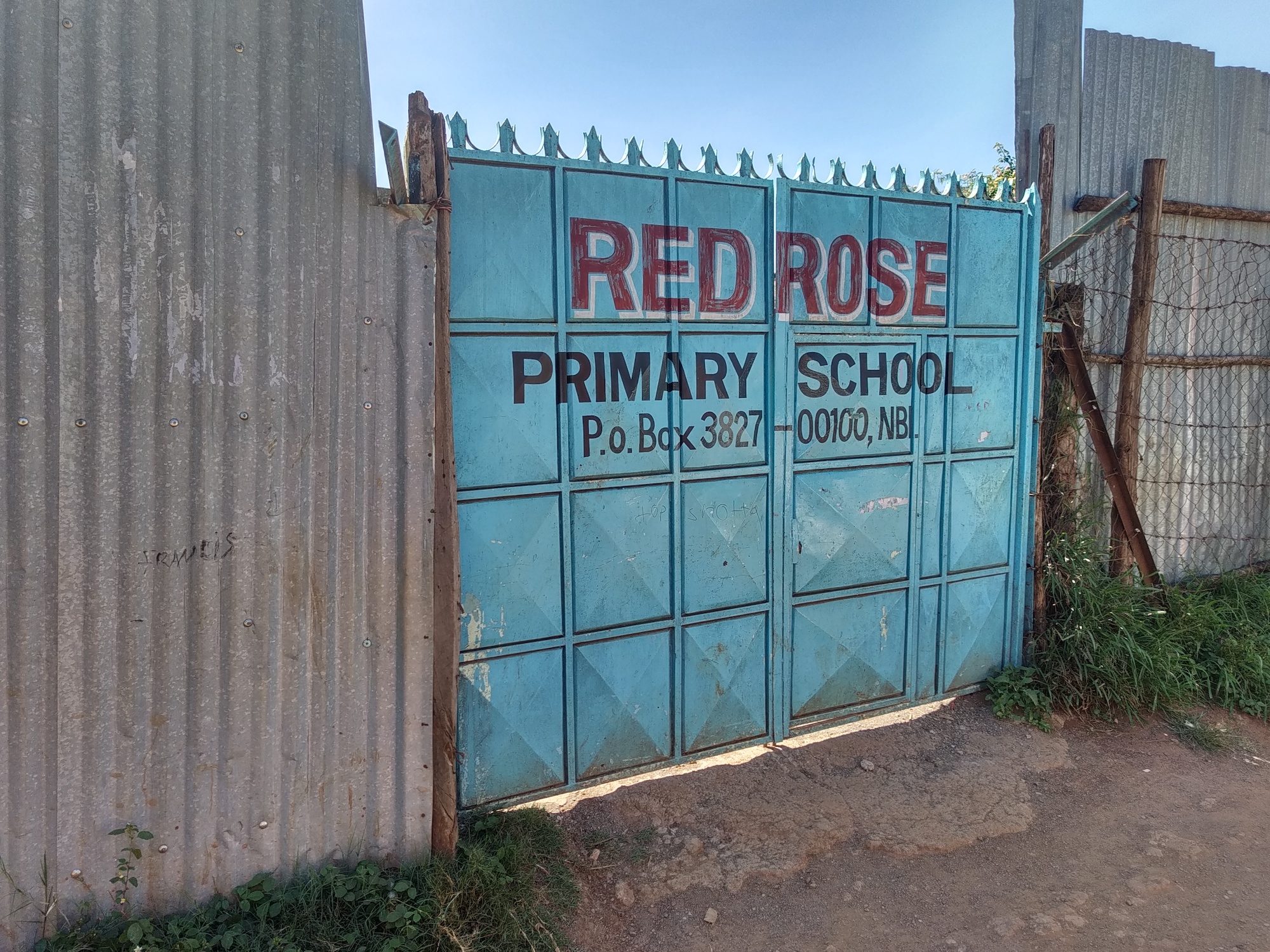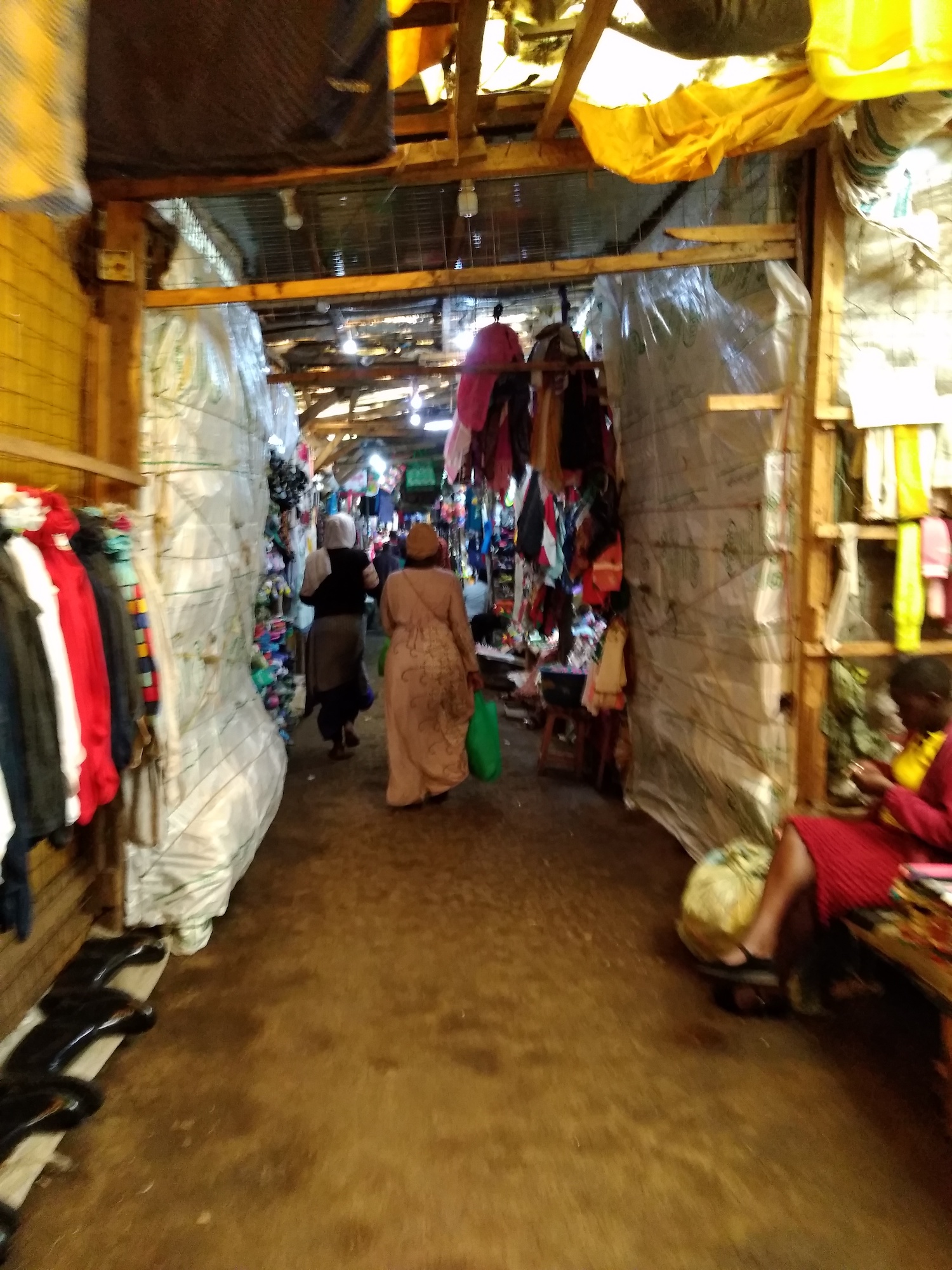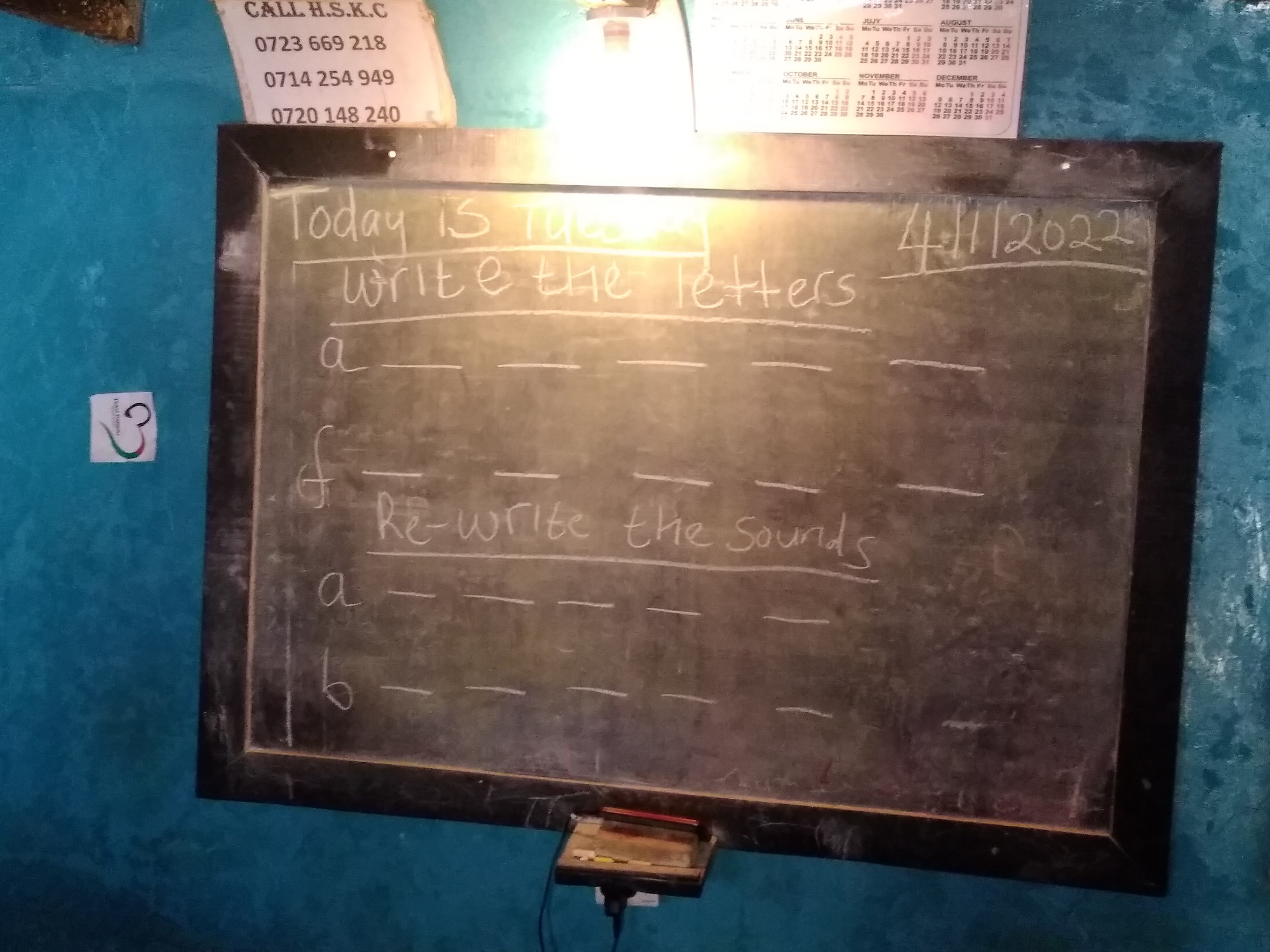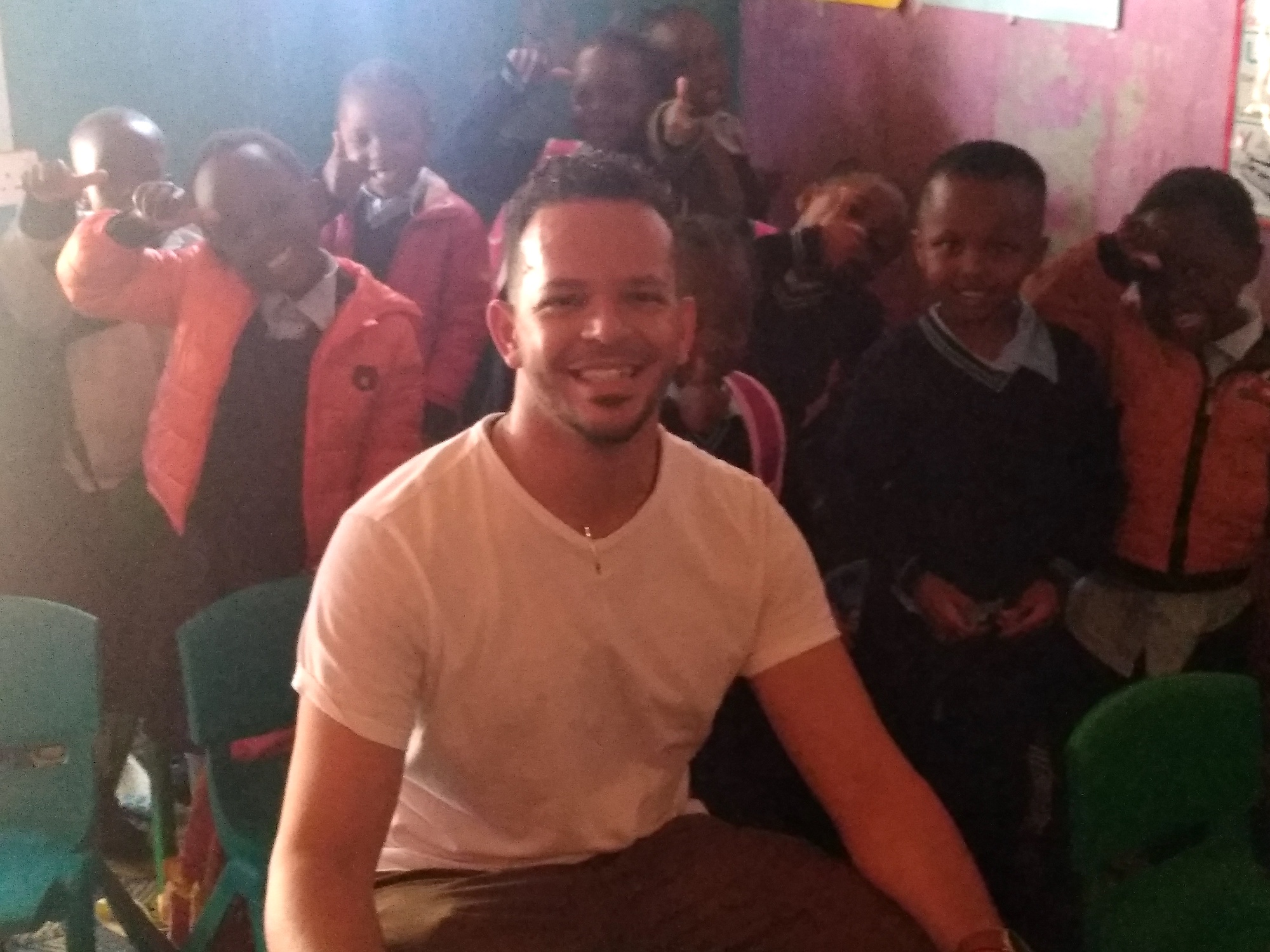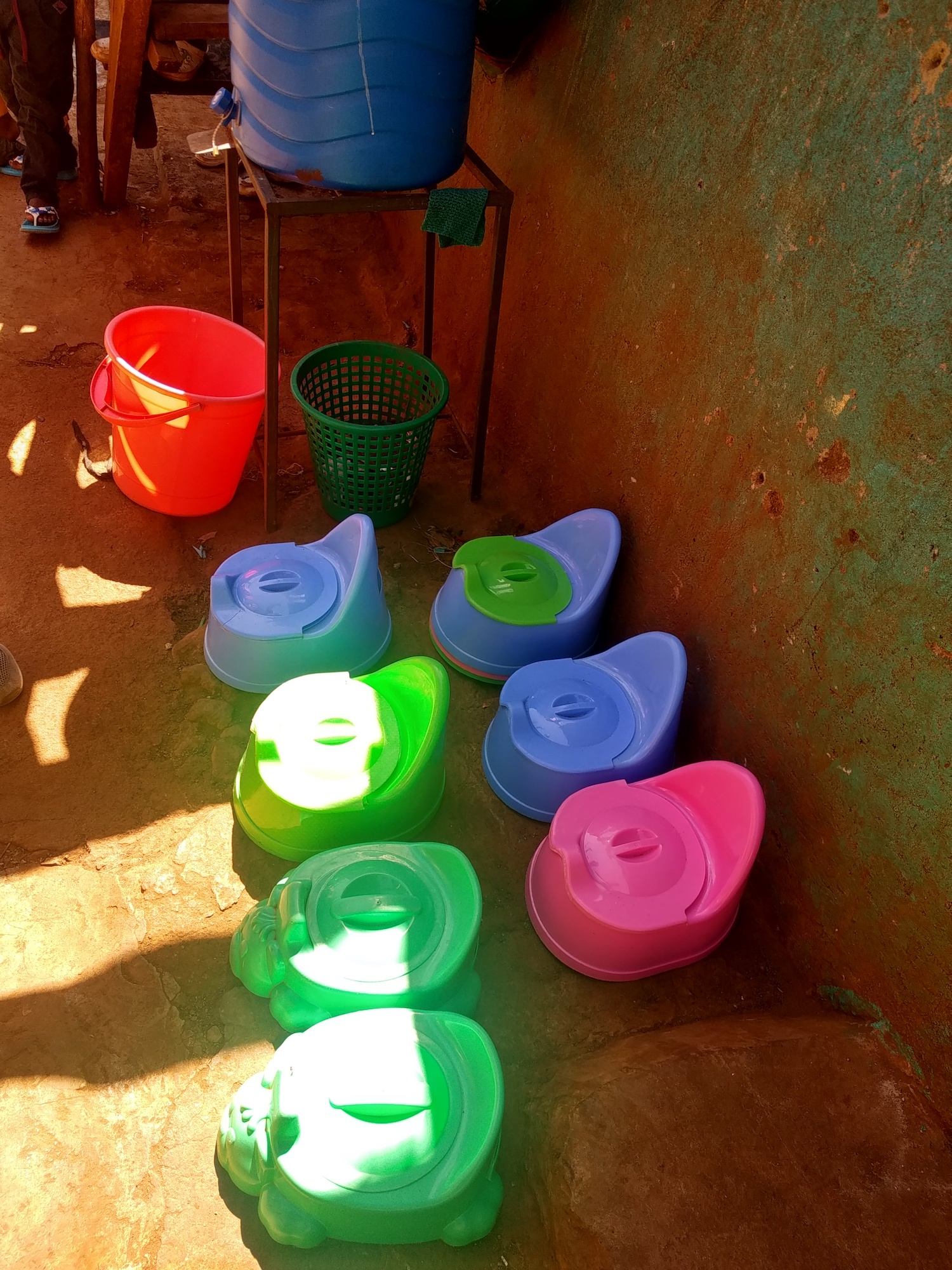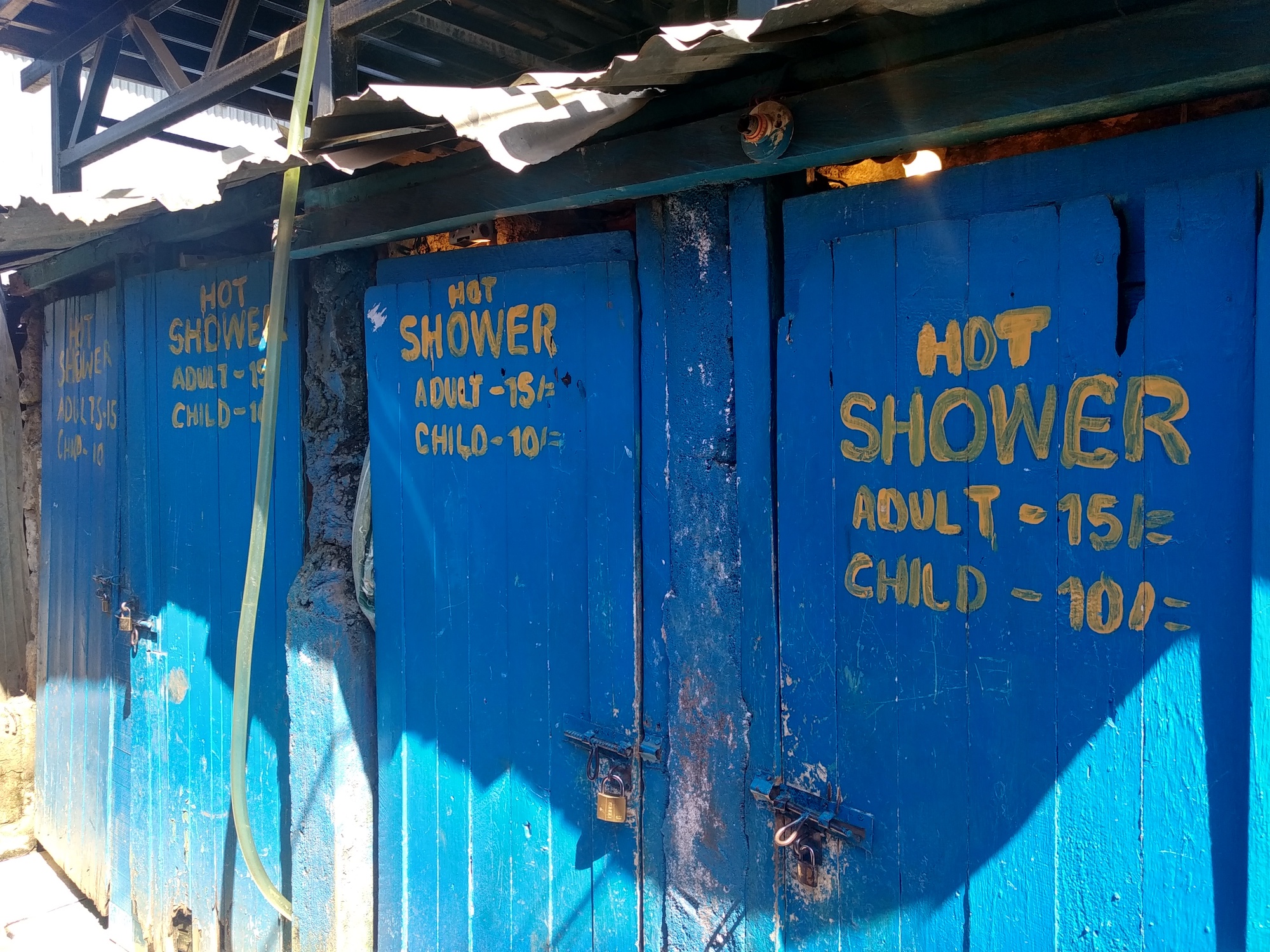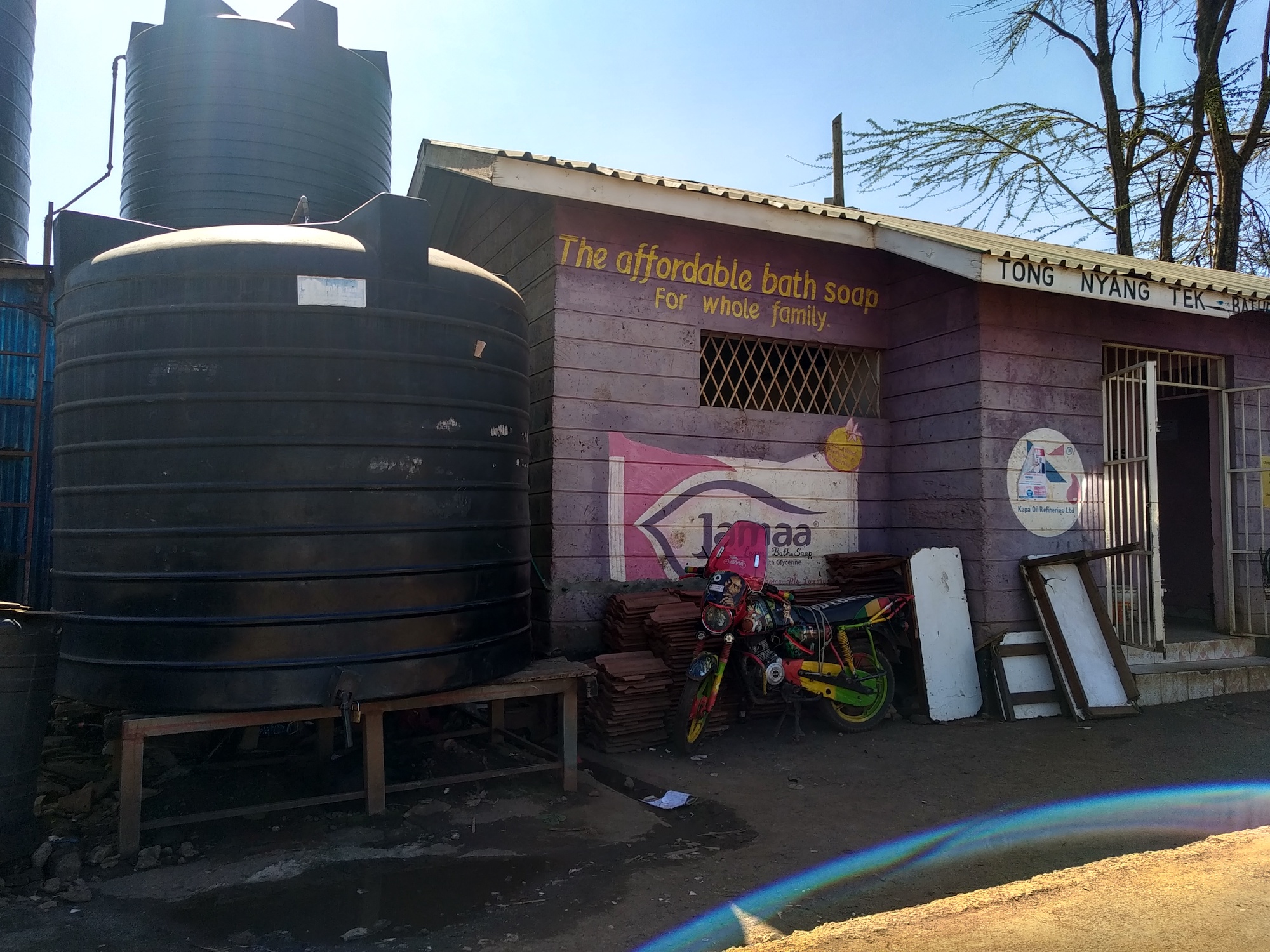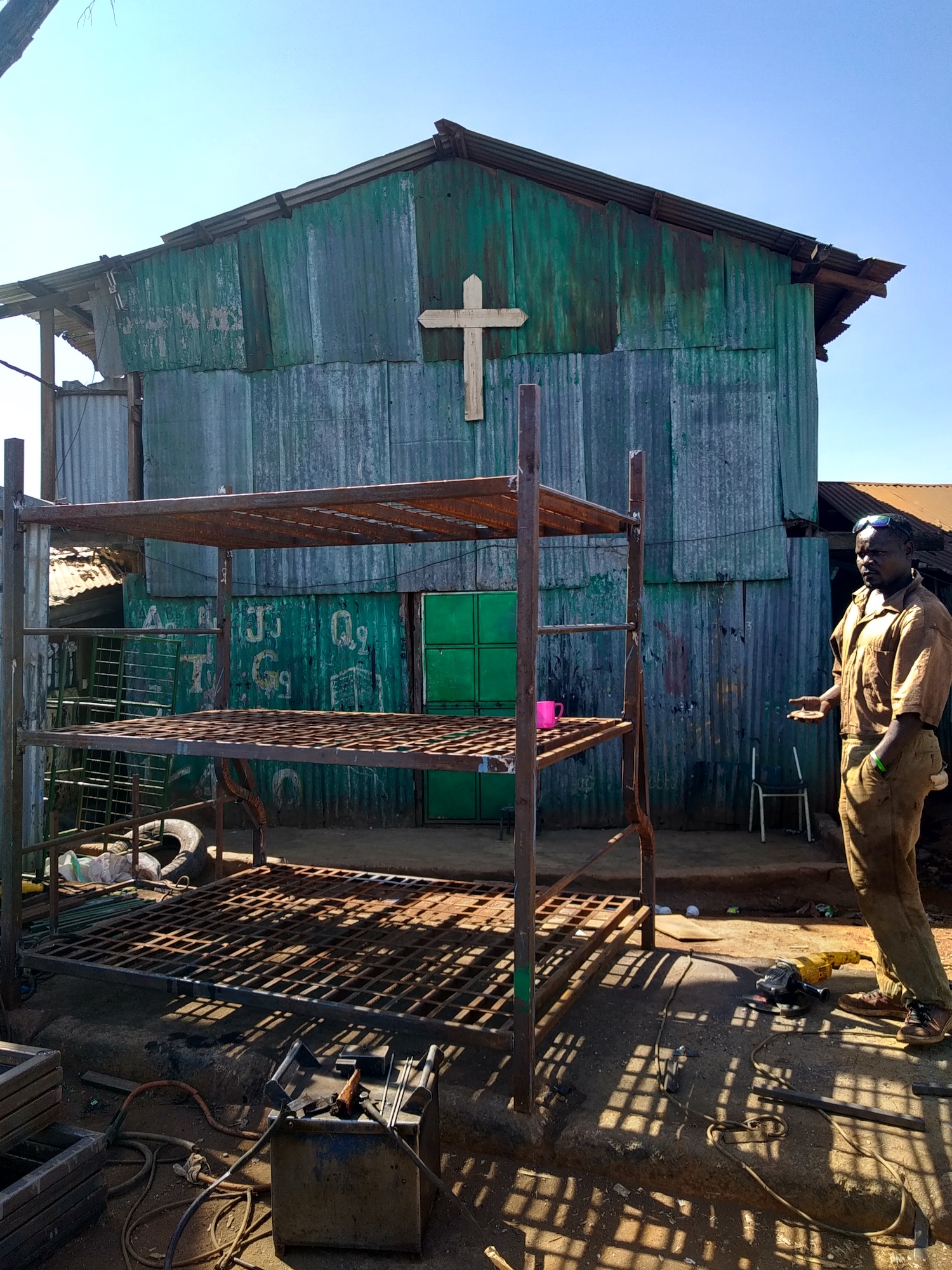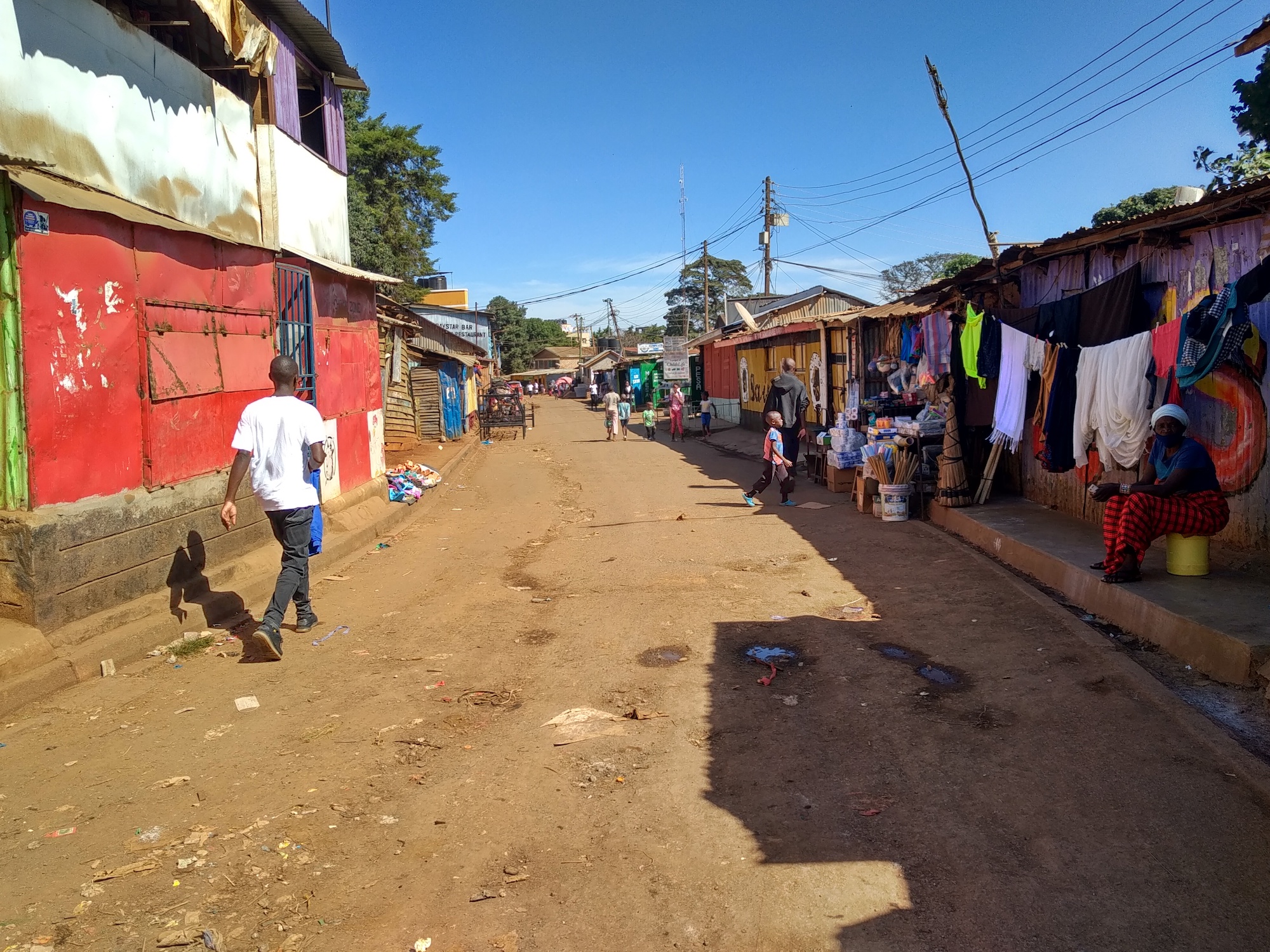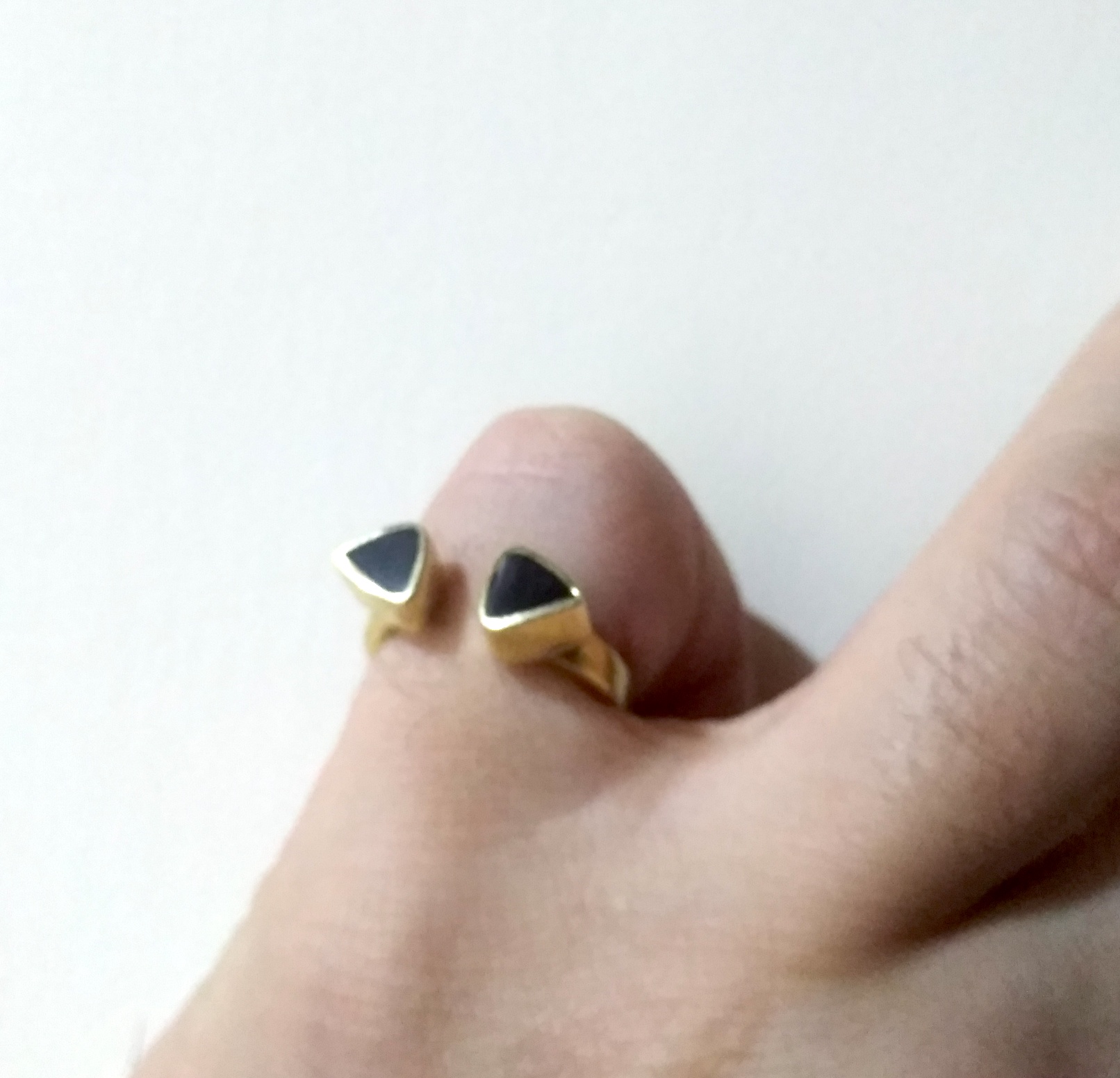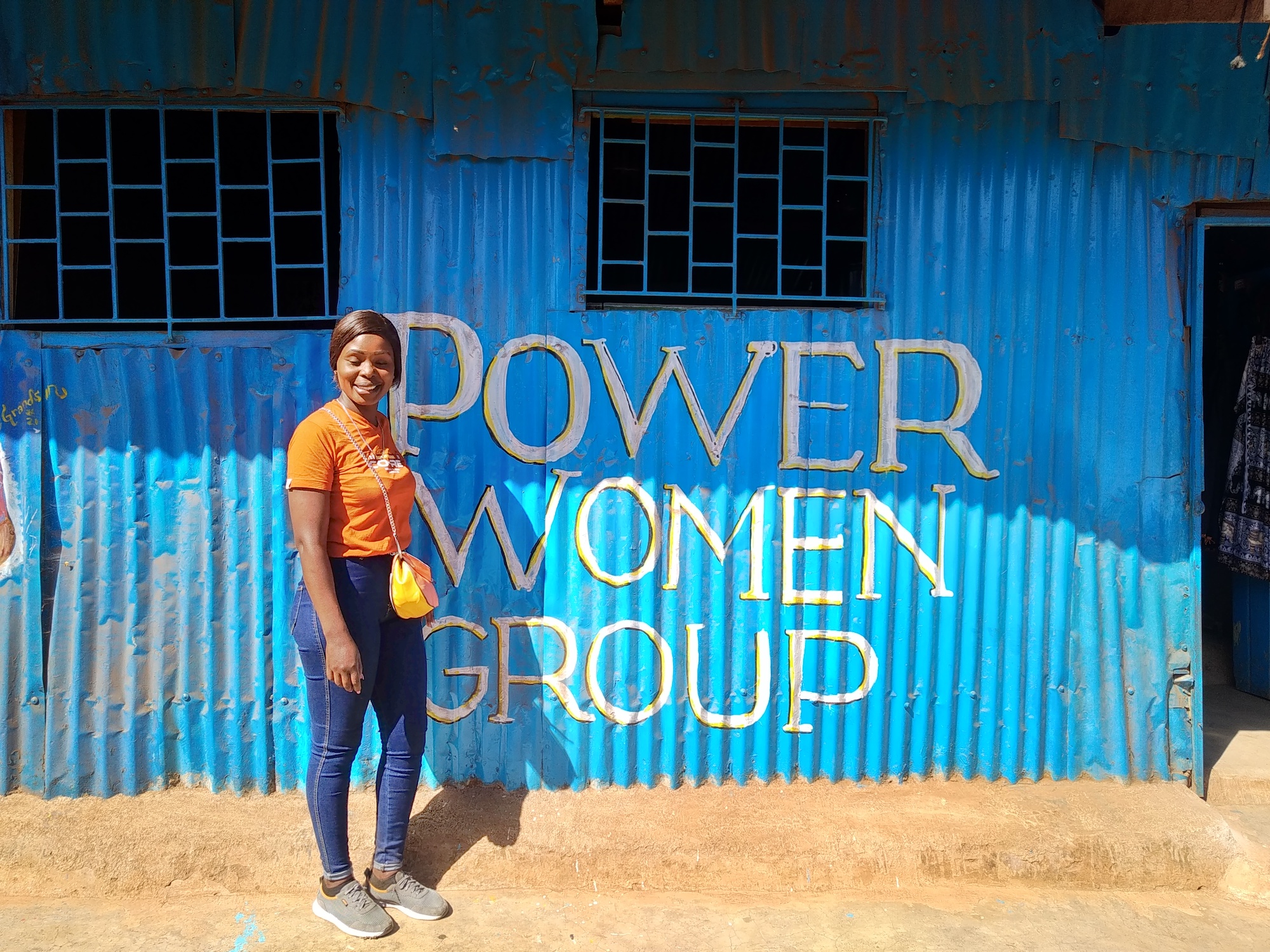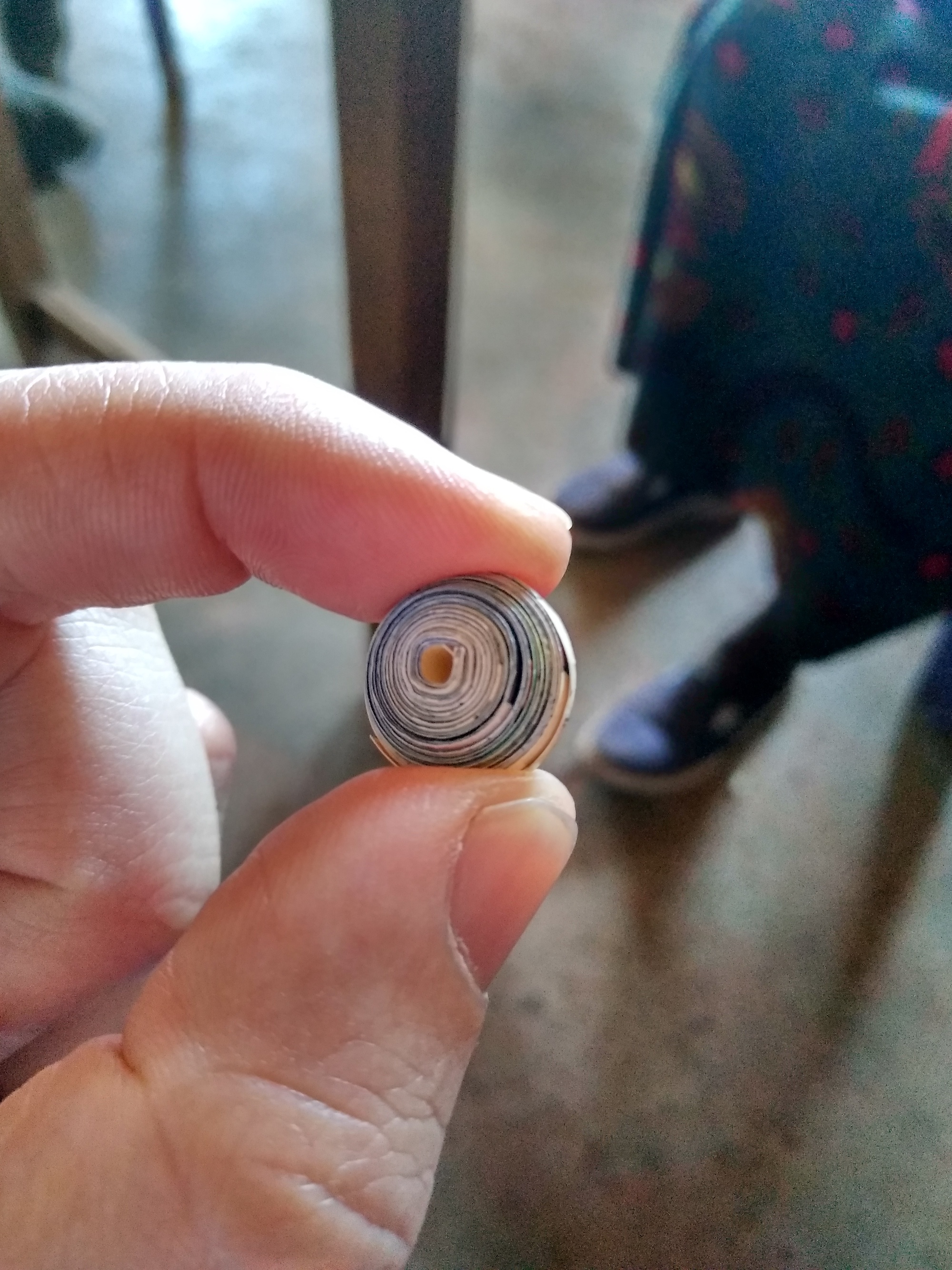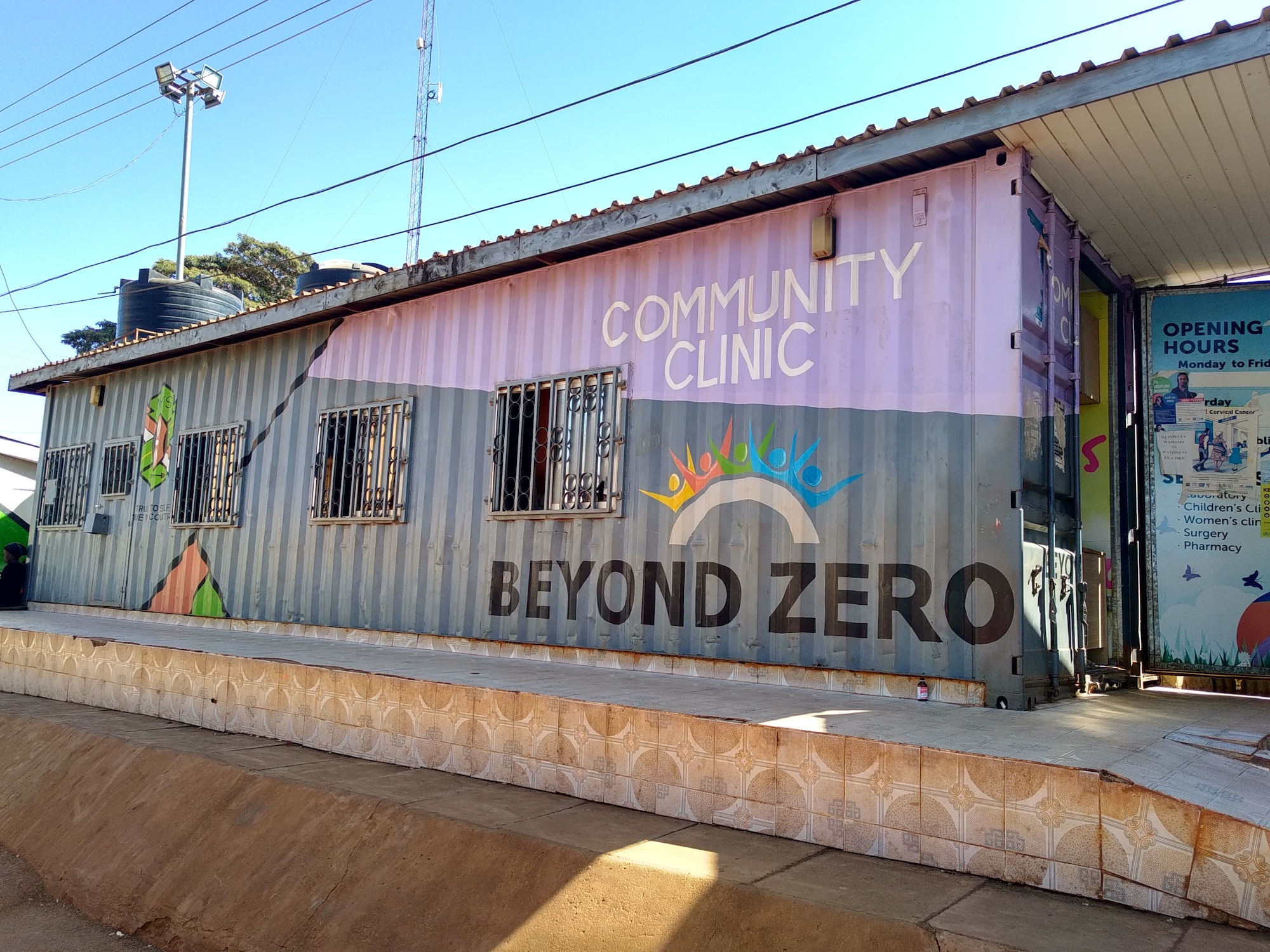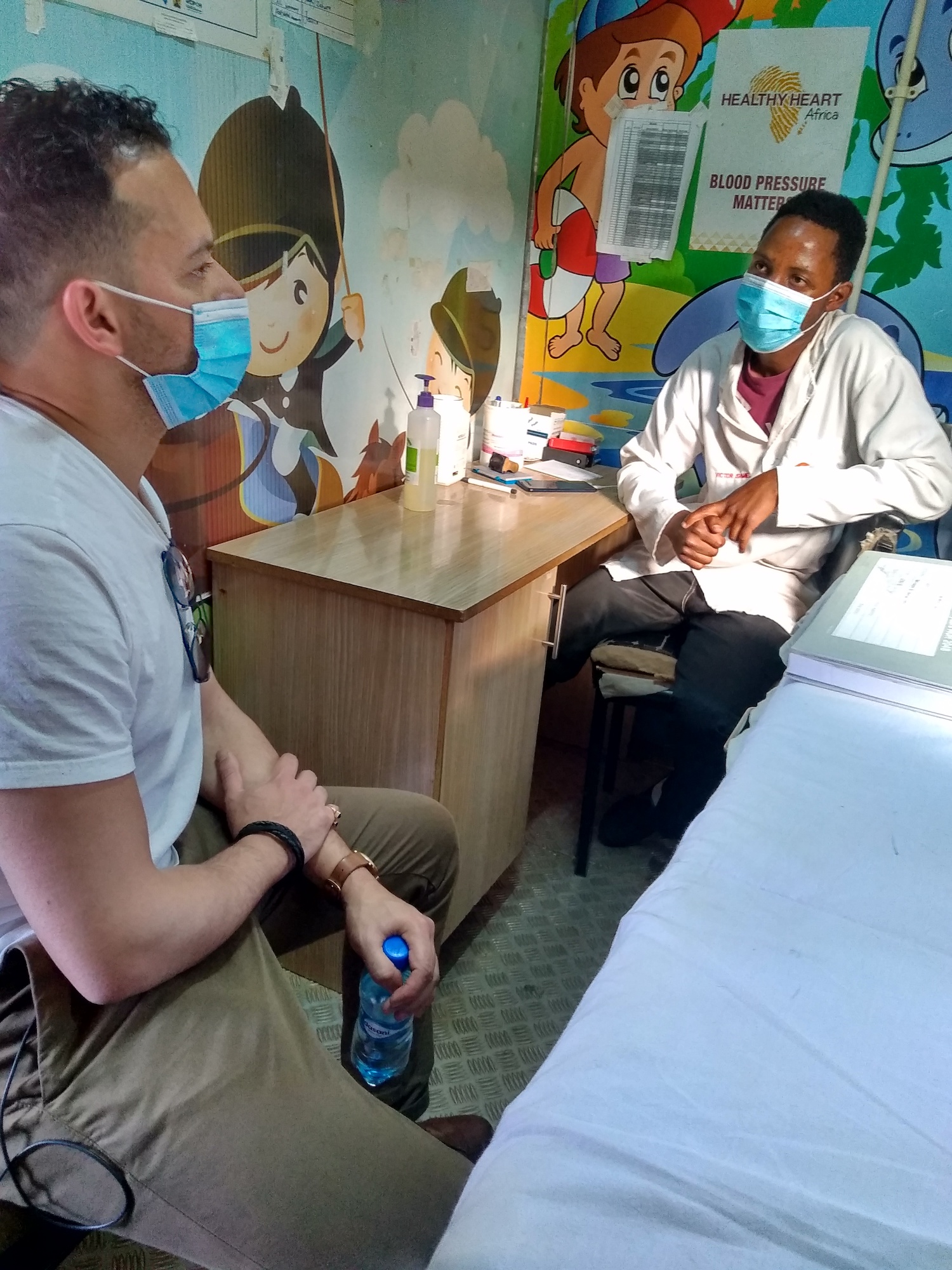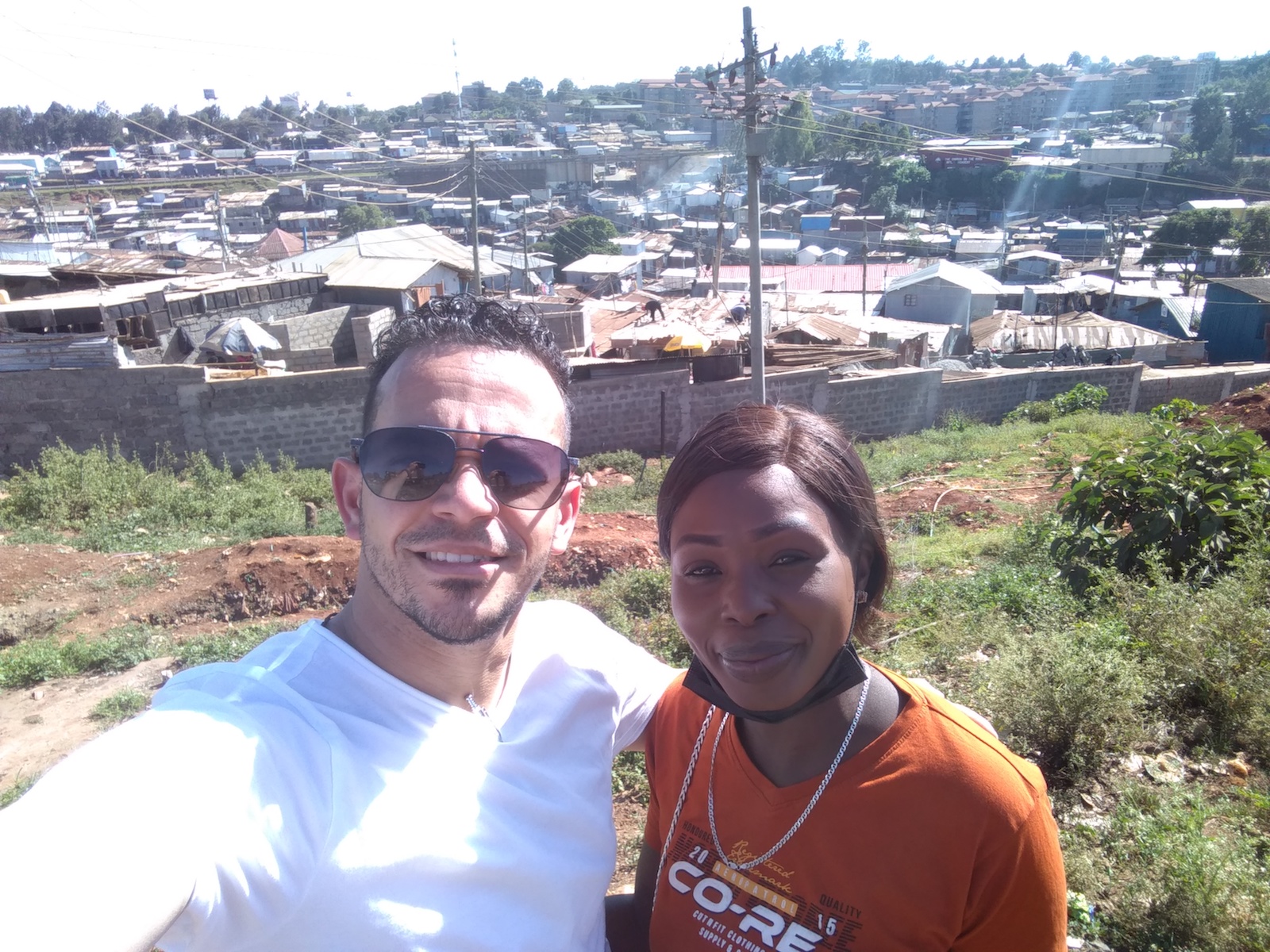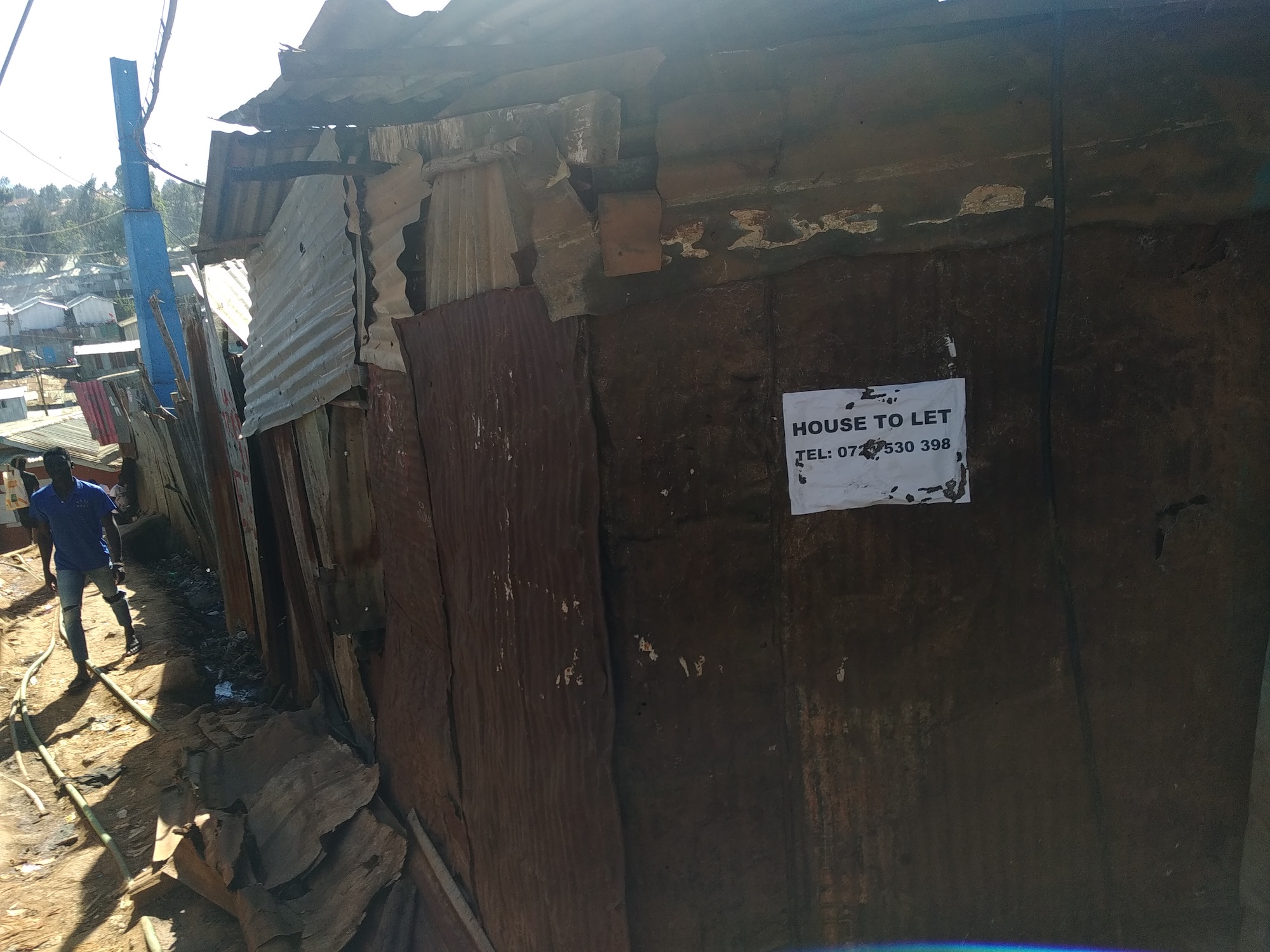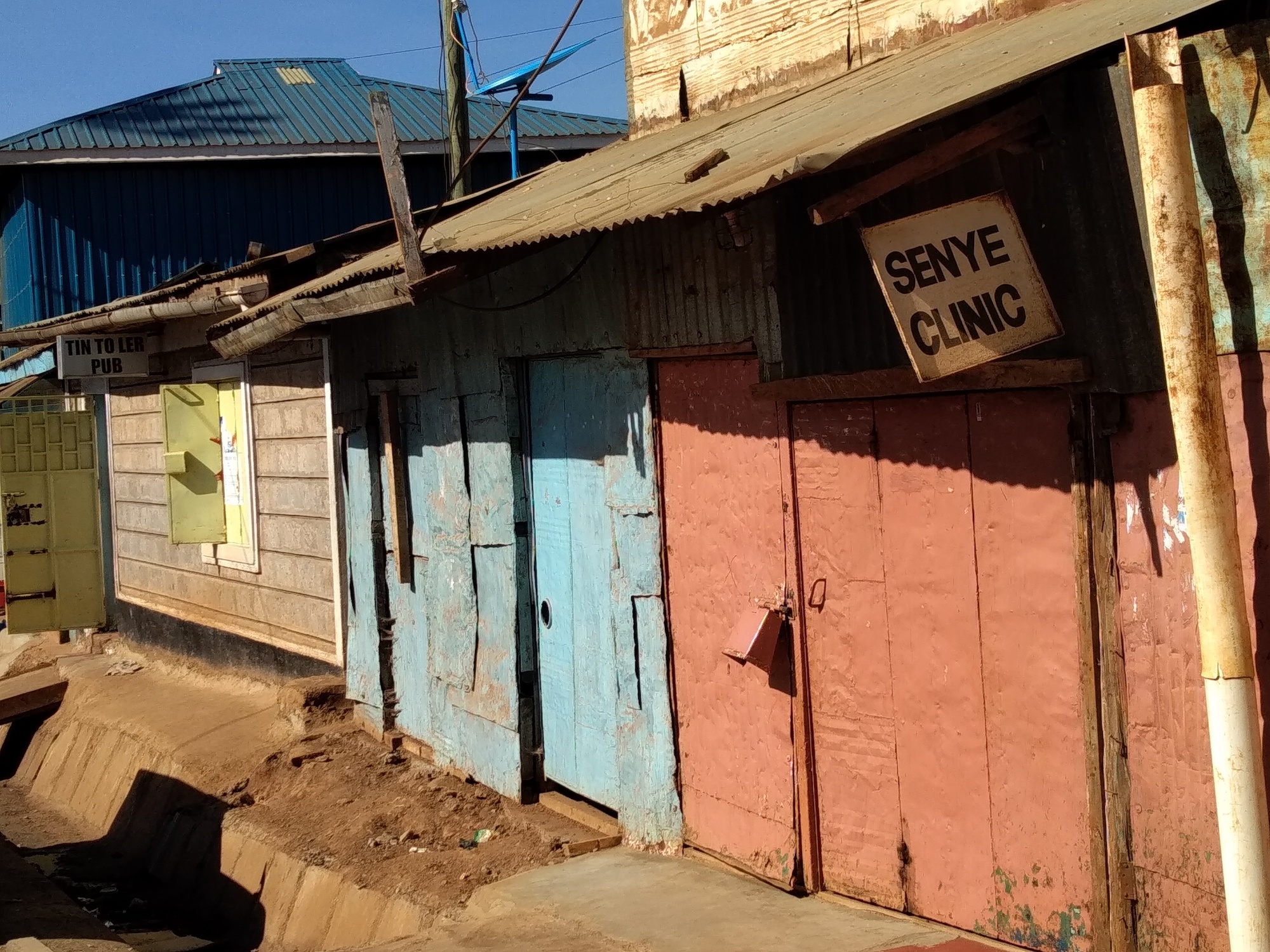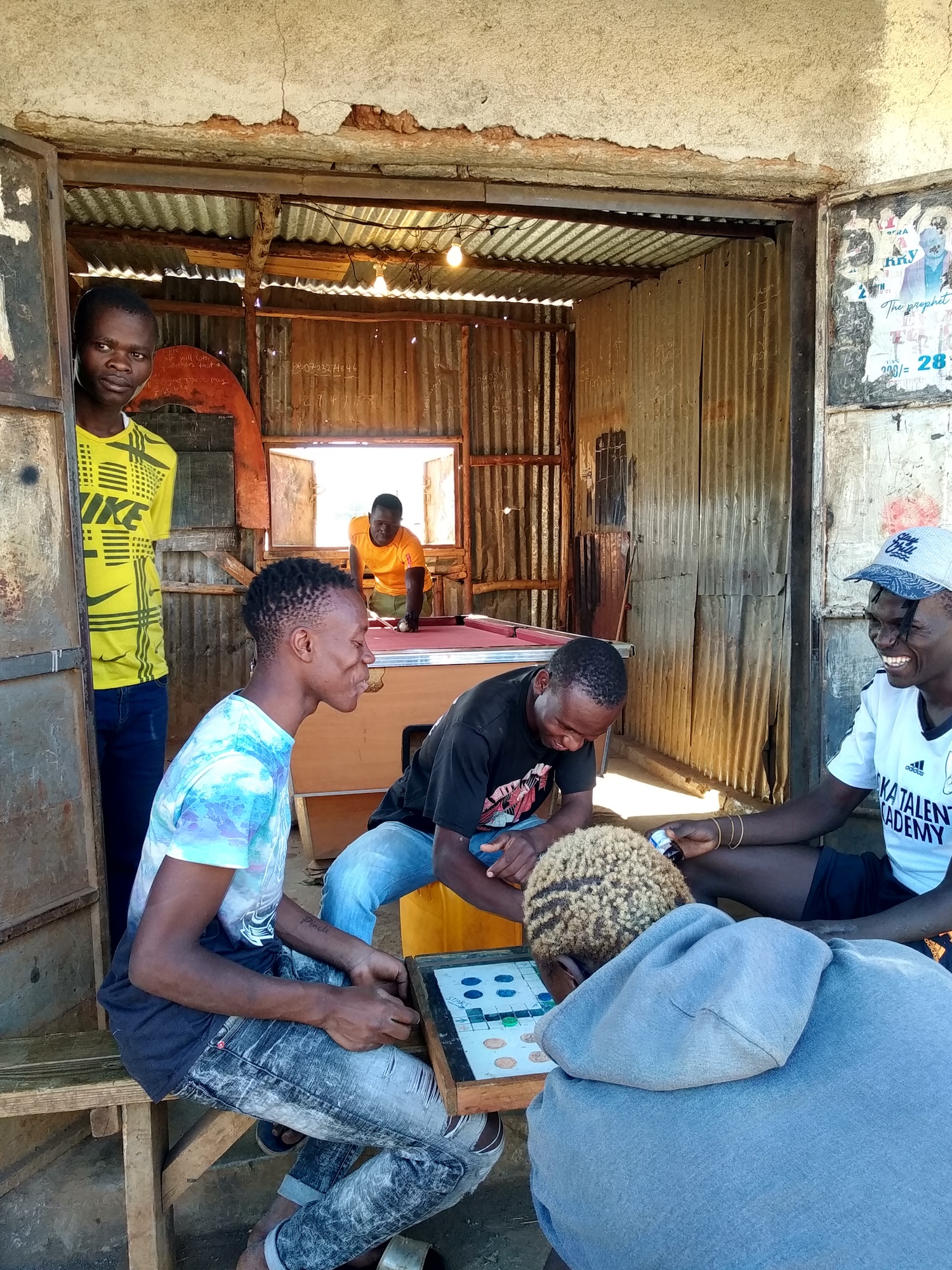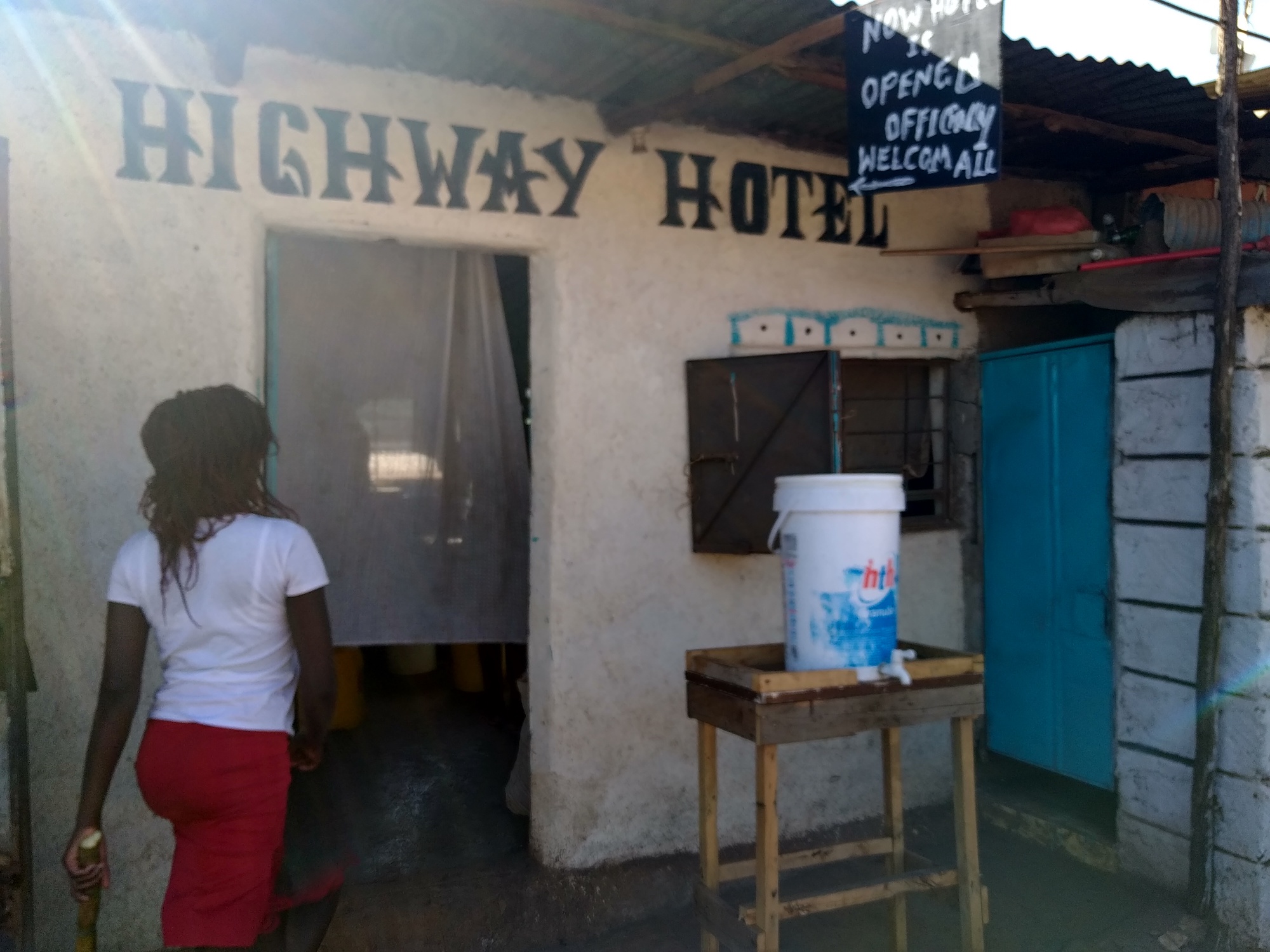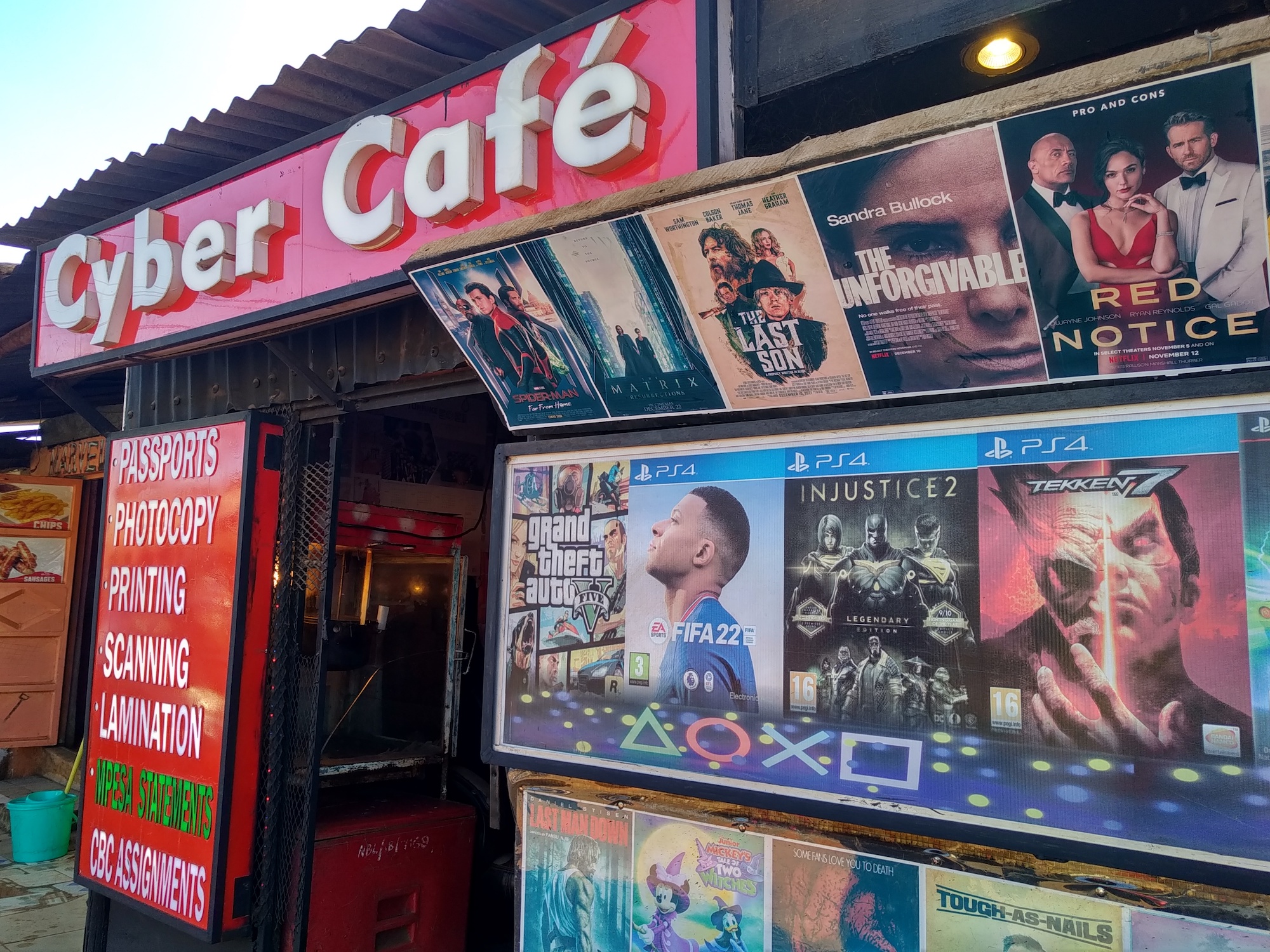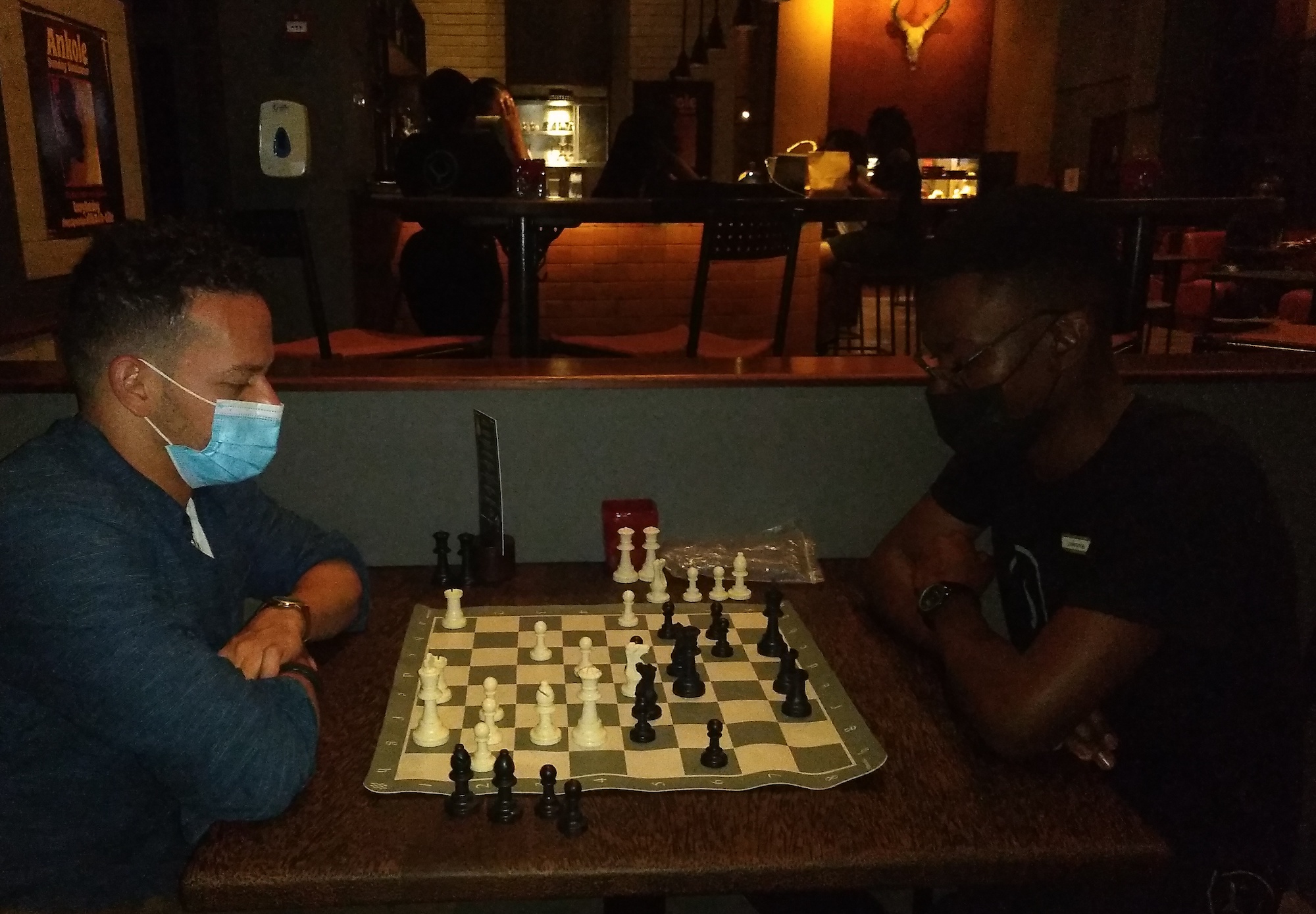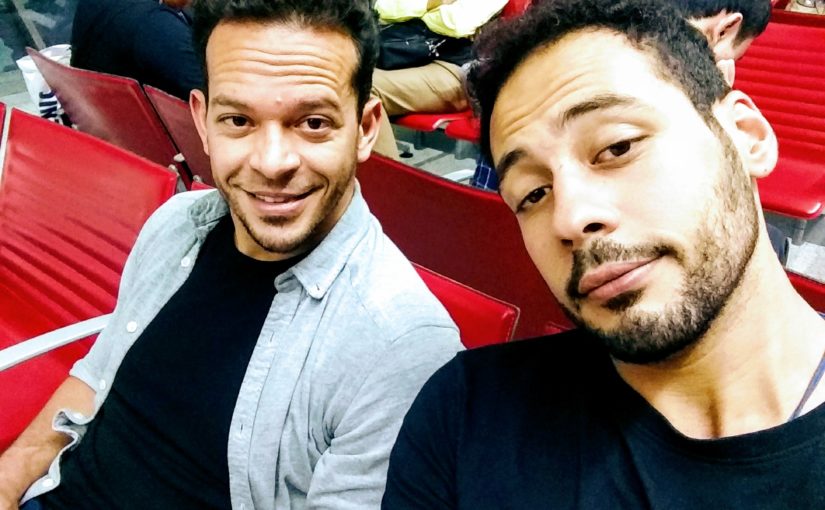Although surfing with Adam in Marrakesh was a nice experience, I decided that it was enough for this trip. I guess at my age, I prefer a certain minimum amount of comfort. On the other hand, hostels are great places to meet people. I decided to continue the trip sleeping in private rooms in hostels or hotels. I grew to appreciate good privacy and alone-time at the end of a socially packed day.
***
The bus from Marrakesh to Essaouira took around 3 hours with a short break. Beside me was a French girl with whom I started chatting in the second half of the trip. Upon arriving in Essaouira, I immediately felt pleasant vibes, the complete opposite of the chaotic vibes in Marrakesh. Already from the bus, you could see countless kites of surfers in the famously windy city. I went straight to the hostel where I booked a room and was greeted by a German young man with one arm. He volunteers working there in exchange for surfing lessons and accommodation! I immediately climbed to the roof terrace with my book to have a read while observing the sun setting in the Atlantic Ocean. Around me were groups of young people who seemed to be traveling together, mainly French or German. I thought about putting on my noise-cancellation headphones since young people in general intimidate me👴🏼. In parallel, I checked out “couchsurfing hangouts,” which is a section of the Couchsurfing app to find other solo travelers to meet up. There, I found Wouter, a Dutch gentleman, and we agreed to go for dinner. Soon enough, a young European lady entered the terrace, saw me, and directly came to me, saying “you were on the bus from Marrakesh.” I said yes and invited her to have a seat nearby, and we started chatting and getting to know each other. Mirjam, a Norwegian 27-year-old traveling solo around Morocco. Mirjam, Wouter, and I went for dinner in a tiny family-run restaurant in the old town of Essaouira. The cook was a Moroccan lady, assisted by two others who looked really old, while the son waited on the tables. We ordered Tajines while discussing life, love, and Morocco. After dinner and the homemade cream caramel, we wandered around the “medina,” charmed by all the handcrafted goods, the small alleys, and passing by the fish market where fishermen prepared their fish of the day for the market the next day, I assume. Mirjam is a janitor, and Wouter is an animation artist. The conversation was very engaging and went much deeper than the casual customary fact-based chit-chat, to include childhood traumas and matters of the heart.
***
On the next day, Wednesday, I started the day with breakfast in the hostel. A modest breakfast that included my new favorite Moroccan almond spread “Amlou.” It consists of argan oil, almonds, and honey. The almonds are toasted, then crushed and kneaded with honey and argan oil. I enjoy it with some freshly made pancakes despite the flies hovering over the whole breakfast!
I then went to the medina, met Wouter, where we bought a chess set and went to a local cafe for some games of chess and more conversations. On the second floor of the cafe, we sat separated by the chess set, the early morning sun rays sneaked from the window and shone directly on the chessboard as well as on Wouter’s stressed face 😅. While playing, we discussed differences between Morocco and Europe and mainly topics which one can’t discuss in Europe since they are tabooed. Wouter’s lack of political correctness was refreshing, and I enjoyed the time we spent together a lot. We exchanged contacts and decided to try to meet later in our trips in another city.
***
Mirjam has a talent to know random people on the street; I met her later in the afternoon with her new friend, Hicham, a Moroccan French young man passionate about Salsa and working in tourism around the world. We spent some beach time where we built a sandcastle like a group of kindergarten children. The sea is relatively dangerous for swimming since the waves can be very high. This is why Essaouira is a good place for wind-surfing, kite-surfing, and etc-rfing. In the evening, we went for dinner accompanied by two new travelers that Mirjam recruited from the hostel, David, from the Canary Islands, traveling the world and speaking 5 languages, and Bartly (fake name), a Chinese electric cars engineer. Bartly barely spoke English but had a radioactive enthusiasm and positivity. We all went for dinner and had funny x-rated conversations, where Bartly was the protagonist translating everything we say with some efficient Chinese app. David and I laughed till tears when Bartly referred to oral sex as “sea-food” 😂😂😂. I hope no children are reading these lines. After another great meal, we went for some dancing in a local bar that was also filled with tourists. On the way back to the hostel, in the windy night of cute Essaouira, David said, “First and last time in f***ing Essaouira.” Mirjam and I will head to Casablanca tomorrow, while David will join us halfway and then stay in Marrakesh.
